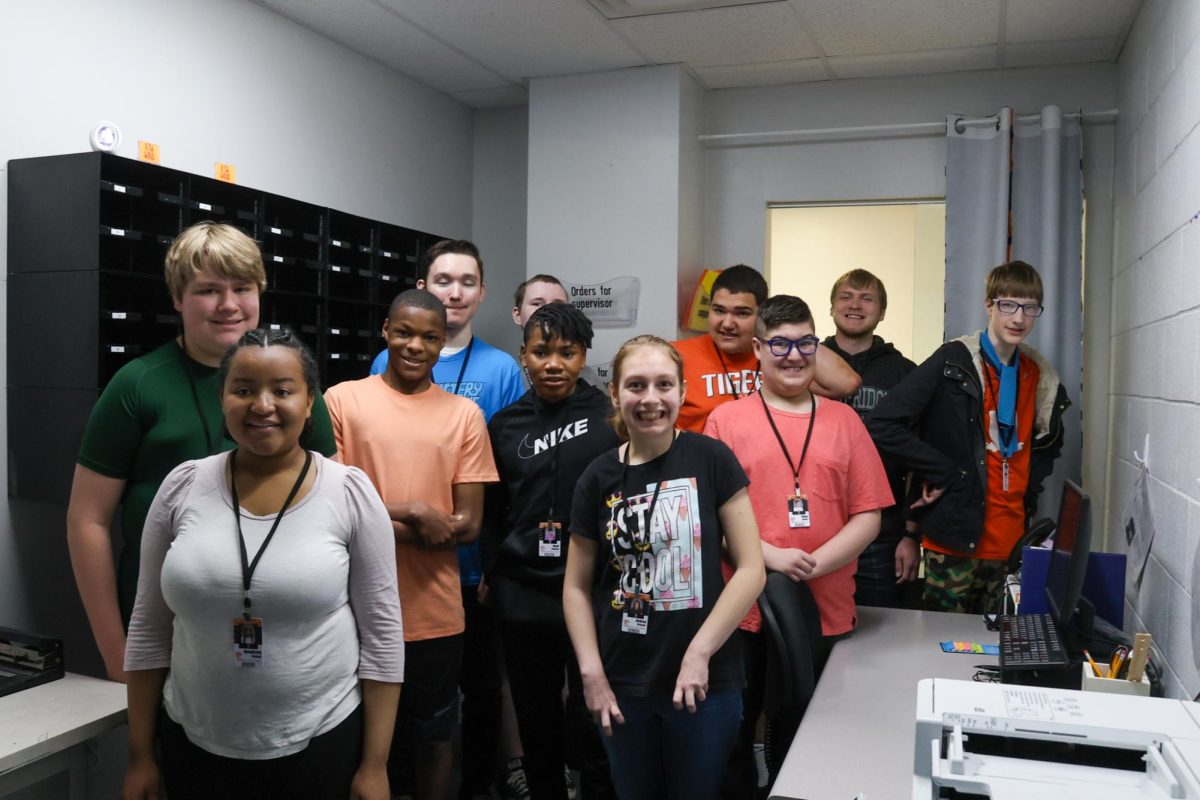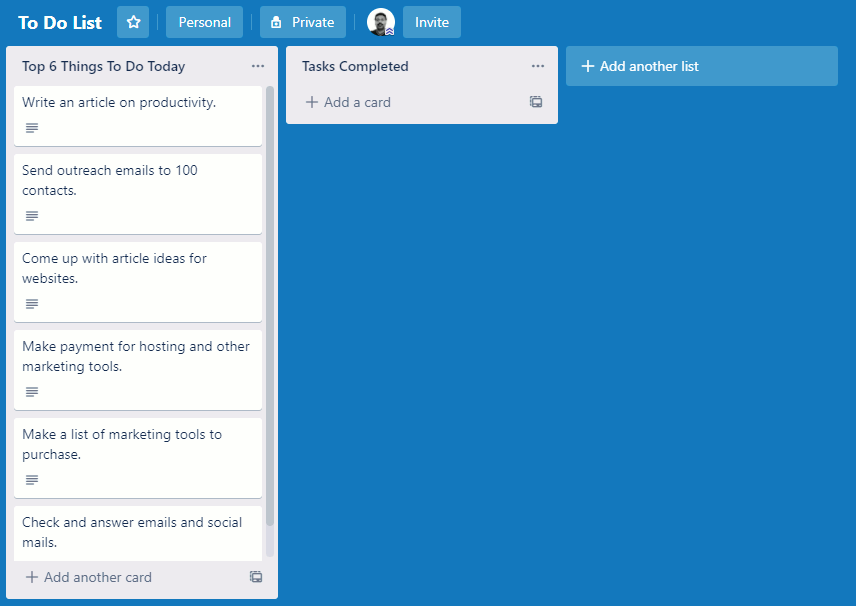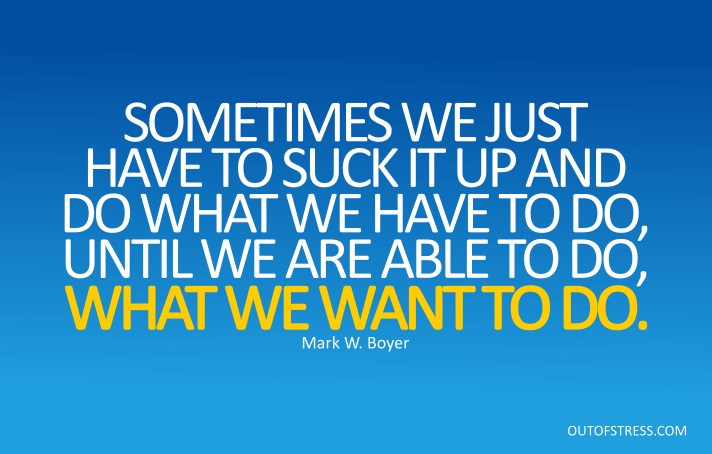- Study & Exam Tips

Homework overload: here’s how to deal
If you feel like you’re drowning under the sea of assignments and tests, follow our eight tips to get your head back above the water.

You’ve probably heard the saying, “The only way to eat an elephant is one bite at a time.”
Despite the ethical implications of an aphori sm that suggests you eat endangered wildlife, it is a useful one to remember whenever you feel overwhelmed by your ever-growing task list.
Like a six-thousand kilo elephant, your homework is something you have to tackle bit by bit. Even if you’ve got eight assignments and three tests to study for, there are ways to reduce your stress so that you can work through each task without crumbling.
1. Start early and use your diary
If your homework is beginning to resemble a giant tsunami surging towards you, you might have failed to properly take into account deadlines. Even if everything is due at once, chances are you weren’t set every assignment on the same day or in the same week. You need to find a good way to keep track of deadlines and other important dates to ensure you leave enough time to get it all done.
Google Calendar is a great way to start. You could even take an analogue approach and get a giant planner to pin on your wall. Once you’ve chosen your toolset, you need to schedule the process of getting yourself to the deadline. This means counting back from D-day so you know when to start a piece of work. This is particularly important for group assignments (which can be a logistical nightmare!) or for longer pieces of work where you’re required to do research or submit drafts. You also need to take into account other deadlines around the same time.
2. Share the load
Do you really need to do everything all on your own or can you share the load with your friends? Now, now, we’re NOT condoning copying or other acts of dishonesty! But sometimes there are valuable ways to consolidate the requirements for a project while still learning everything that you need to learn. For a Humanities assignment that requires research, perhaps you can divide and conquer. You’ll still need to teach each other what you’ve learned, which is incidentally also a great way to consolidate your understanding.
3. Negotiate
Even if you carefully note all deadlines, you may still find that everything is due on the same day. Eek! The thing is, teachers often don’t speak to their colleagues about stuff like this, so they don’t know that every single teacher in the school has chosen the same due date for work. And sometimes – like the end of term – it’s inevitable that everything will come in at the same time.
But what if the reason you’re overloaded is personal? Perhaps you have an important sporting event that’s going to interfere with your prep time. You might just need to ask one or some of your teachers for an extension. Your school might have a policy about this, but either way, it doesn’t hurt to approach your teacher privately, explain the situation politely, and ask if there’s anything they can do to take a bit of pressure off you.
It probably goes without saying that you’ll be much more successful the earlier you request an extension. Don’t leave it till the last minute — that just suggests that you’re not very organised. And no need to feel that you have to pile on the drama. You may feel dramatic about it, but generally teachers are more responsive to a sensible, logical argument and a reasonable suggestion.
4. Just do it
Sometimes the best thing you can do is just get the work done. Even if you decide to do a less-than-perfect job in order to meet the deadline, you’ll still learn from the feedback you receive. Of course, the lower the stakes, the easier this advice is to follow, so it may be a matter of determining the importance of each task in terms of how heavily the mark will affect your grade or how important the subject is to you.
We’ve all had to make the decision to just get something done , rather than give it all the time it deserves, so don’t feel too bad about it. If, on the other hand, you have a tendency to hold back on submitting tasks because you don’t think they’re good enough, you may be a perfectionist.
We think of perfectionism as a desirable trait, and it does suggest that you care about doing your best, which is admirable. But perfect doesn’t exist. We’re all doing our best in the time allotted. And if you never hand anything in, you never get the feedback you need to improve and progress. So, resist your desire to avoid completing your homework. Avoid avoidance. Just do it, submit it, move on.
5. Keep living
When you’re stressed, there’s a natural temptation to limit everything else you do. You certainly do need to spend time focusing. But just sitting at your desk, doing a little bit of that subject and a little bit of this subject but not really doing anything because you’re so BORED won’t help. Go for a walk, take a nap, return refreshed.
6. Gain some clarity
Feeling overwhelmed may have less to do with the quantity of work in front of you and more to do with the fact that you’re not entirely clear about what’s required. It sounds obvious, but it’s remarkable how many students avoid starting a task carefully because they think it’s bigger and more confusing than it really is.
So, read the question. Once you’ve read it, do you understand what you have to do? If not, the temptation will be to put your head in your hands and a) tell yourself you’re stupid, b) tell yourself that your teacher is stupid and/or a terrible person, or c) get involved in a long Whatsapp thread with your friends to talk about how you’re stupid AND your teacher is a terrible human.
To avoid this scenario, make some notes about what you find confusing and/or hard to follow and arrange to talk to your teacher tomorrow to gain some clarity.
7. Start, even for a few minutes
While this might seem counterintuitive, it can be really useful to start something, even if you don’t have much time. Maybe you do only have fifteen minutes before you have to go to soccer training, or it’s late and you want to go to bed. But you also have that essay to begin and the blank screen can be so discouraging. Just write something, anything. A couple of sentences are enough. You’ll come back to it tomorrow and change them, so no need to agonise too much.
Don’t underestimate how much momentum just starting can bring to the situation. Tomorrow, when you come back to the task, you’re not facing a blank screen. Sure, you may need to make some revisions, but you’ll be surprised how decent the words you wrote often are. At least there’s something to work with.
8. Get some help
If none of these points really help you to eat the elephant , then try something else. At Cluey, you can work with your personal tutor on your homework and maybe fill some of those skills and knowledge gaps that are making you feel anxious. Importantly, we can demystify your assignments, give you valuable feedback on how best to tackle each problem, and build your confidence. You don’t need to feel overloaded or alone with your homework again.
ABOUT CLUEY LEARNING
Dr Selina Samuels
Education expert.
BA(Hons), LLB, PhD, MEd
Cluey Newsletter
Our expert tips. Your inbox.
Follow us on Facebook
Cluey Learning
Explore the Cluey Blog
- School & Education News
SAVE 30% on selected course fees. Ends 21st May 2024

Don’t Overload Students: Assigning Too Much Work Discourages Learning
H as your to-do list ever been so long that you felt physically drained at the thought of everything that needed to be done?
New research has shed some light on the reason behind this feeling and shows that overloading students causes not only academic stress, but also takes a toll on students’ mental and physical health, which, unsurprisingly, hinders learning.
The study, led by Mollie Galloway from Lewis and Clark College, shows that although students who spend more time doing homework are sometimes more behaviourally engaged in school, they also tend to be more anxious, and report more physical symptoms due to stress.
“Although the students in our study were averaging more than three hours of homework per night, most did not find this homework engaging, nor did they feel it enhanced their learning,” says Galloway.
“Because homework tends to acts as a stressor in students’ lives, their bodies must find a way to respond or react to this stressor, and although research has shown that some level of stress can be healthy, chronic stress can induce negative physical, mental, and behaviour outcomes,” she explains.
The researchers surveyed over 4,000 students to determine the role that this additional work played as a stressor in their lives.
By asking questions like “How often do you try as hard as you can in school?” and “How often do you complete your school assignments?” they were able to paint a picture of students’ level of behavioural engagement.
The mental and physical well-being assessment consisted of questions like “How often do you feel stressed about your academic experience?” as well as enquiries about stress-related health problems such as headaches, weight gain and sleep difficulties.
Only 6% of students said they found their homework “very useful” in preparing them for learning, tests, papers or projects, and many experienced stress, compromised health and a lack of balance.
Students also voiced their frustration with their workload, saying things like; “There’s never a time to rest, there’s always something more you should be doing;” “It can feel like you are drowning;” and “My body crashes when I’ve done maybe half of my homework.”
Based on such student feedback, the researchers speculate that homework overload can actually limit a person’s capacity to learn.
“Our study suggests that [students who are overloaded] experience higher levels of stress and more physical problems like sweating, headaches, exhaustion, stomach problems, and/or sleeping difficulties,” notes Galloway.
“In addition, these students report a general lack of balance in their lives, feeling like they need to choose completing their homework over engaging in social, physical, and restorative activities that could support their well-being.”
Previous research has also shown that assigning too much work can diminish its effectiveness and even make it counter-productive. Clearly, just because students are doing more work, doesn’t mean they are actually learning more.
But what can teachers do make sure that they assign enough work without frustrating and overloading students?
Dr. Galloway notes that any work assigned to students should have a clear purpose and benefit, and should be designed to cultivate learning and development.
She also suggests the following tips for finding the right balance:
- Students and teachers should generally align in their description of the purpose of homework (that is, students should be able to identify the purpose)
- Teachers should not simply check-off homework as “complete” or “incomplete.” Homework should be incorporated or utilized in the lesson to facilitate the learning experience.
- Students and teachers should engage together in co-constructing homework assignments. In such co-construction, students can identify various ways to build upon and expand their learning of a topic or concept. This also provides opportunities for students to bring their strengths; creativity; cultural ways of learning; and community assets to the learning process.
By Open Colleges
Related blogs.
Explore our collection of informative and educational blog posts to stay updated on the latest industry trends and expert advice.
Expert Tips to Succeed in Work Placement
How to become a youth worker in australia, understanding superseded courses: what it means for your education, terminology, top qualities of a successful healthcare aide, workers in need: a look at the aging care crisis, five quick tips for requesting a reference letter, the five best careers working with children.
- Choosing a selection results in a full page refresh.
- Opens in a new window.
- PRO Courses Guides New Tech Help Pro Expert Videos About wikiHow Pro Upgrade Sign In
- EDIT Edit this Article
- EXPLORE Tech Help Pro About Us Random Article Quizzes Request a New Article Community Dashboard This Or That Game Popular Categories Arts and Entertainment Artwork Books Movies Computers and Electronics Computers Phone Skills Technology Hacks Health Men's Health Mental Health Women's Health Relationships Dating Love Relationship Issues Hobbies and Crafts Crafts Drawing Games Education & Communication Communication Skills Personal Development Studying Personal Care and Style Fashion Hair Care Personal Hygiene Youth Personal Care School Stuff Dating All Categories Arts and Entertainment Finance and Business Home and Garden Relationship Quizzes Cars & Other Vehicles Food and Entertaining Personal Care and Style Sports and Fitness Computers and Electronics Health Pets and Animals Travel Education & Communication Hobbies and Crafts Philosophy and Religion Work World Family Life Holidays and Traditions Relationships Youth
- Browse Articles
- Learn Something New
- Quizzes Hot
- This Or That Game
- Train Your Brain
- Explore More
- Support wikiHow
- About wikiHow
- Log in / Sign up
- Education and Communications
- Study Skills
- Homework Skills
11 Ways to Deal With Homework Overload
Last Updated: May 6, 2024 Fact Checked
Making a Plan
Staying motivated, starting good homework habits, expert q&a.
This article was co-authored by Jennifer Kaifesh . Jennifer Kaifesh is the Founder of Great Expectations College Prep, a tutoring and counseling service based in Southern California. Jennifer has over 15 years of experience managing and facilitating academic tutoring and standardized test prep as it relates to the college application process. She takes a personal approach to her tutoring, and focuses on working with students to find their specific mix of pursuits that they both enjoy and excel at. She is a graduate of Northwestern University. There are 7 references cited in this article, which can be found at the bottom of the page. This article has been fact-checked, ensuring the accuracy of any cited facts and confirming the authority of its sources. This article has been viewed 253,756 times.
A pile of homework can seem daunting, but it’s doable if you make a plan. Make a list of everything you need to do, and work your way through, starting with the most difficult assignments. Focus on your homework and tune out distractions, and you’ll get through things more efficiently. Giving yourself breaks and other rewards will help you stay motivated along the way. Don’t be afraid to ask for help if you get stuck! Hang in there, and you’ll knock the homework out before you know it.
Things You Should Know
- Create a checklist of everything you have to do, making sure to include deadlines and which assignments are a top priority.
- Take a 15-minute break for every 2 hours of studying. This can give your mind a break and help you feel more focused.
- Make a schedule of when you plan on doing your homework and try to stick to it. This way, you won’t feel too overwhelmed as the assignments roll in.

- Make a plan to go through your work bit by bit, saving the easiest tasks for last.

- Put phones and any other distractions away. If you have to do your homework on a computer, avoid checking your email or social media while you are trying to work.
- Consider letting your family (or at least your parents) know where and when you plan to do homework, so they'll know to be considerate and only interrupt if necessary.

- If you have the option to do your homework in a study hall, library, or other place where there might be tutors, go for it. That way, there will be help around if you need it. You'll also likely wind up with more free time if you can get work done in school.

- To take a break, get up and move away from your workspace. Walk around a bit, and get a drink or snack.
- Moving around will recharge you mentally, physically, and spiritually, so you’re ready to tackle the next part of your homework.

- For instance, you might write “I need to do this chemistry homework because I want a good average in the class. That will raise my GPA and help me stay eligible for the basketball team and get my diploma.”
- Your goals might also look something like “I’m going to write this history paper because I want to get better as a writer. Knowing how to write well and make a good argument will help me when I’m trying to enter law school, and then down the road when I hope to become a successful attorney.”

- Try doing your homework as soon as possible after it is assigned. Say you have one set of classes on Mondays, Wednesdays, and Fridays, and another on Tuesdays and Thursdays. Do the Monday homework on Monday, instead of putting it off until Tuesday.
- That way, the class will still be fresh in your mind, making the homework easier.
- This also gives you time to ask for help if there’s something you don’t understand.

- If you want to keep everyone accountable, write a pact for everyone in your study group to sign, like “I agree to spend 2 hours on Monday and Wednesday afternoons with my study group. I will use that time just for working, and won’t give in to distractions or playing around.”
- Once everyone’s gotten through the homework, there’s no problem with hanging out.

- Most teachers are willing to listen if you’re trying and legitimately have trouble keeping up. They might even adjust the homework assignments to make them more manageable.

Reader Videos
You Might Also Like

- ↑ https://www.understood.org/en/articles/homework-strategies
- ↑ https://kidshealth.org/en/teens/homework.html
- ↑ https://kidshelpline.com.au/kids/tips/dealing-with-homework
- ↑ https://kidshealth.org/en/teens/focused.html
- ↑ http://www.aiuniv.edu/blog/august-2014/tips-for-fighting-homework-fatigue
- ↑ http://kidshealth.org/en/parents/homework.html
- ↑ https://learningcenter.unc.edu/tips-and-tools/study-partners/
About This Article

- Send fan mail to authors
Reader Success Stories
Dec 2, 2023
Did this article help you?

Daniella Dunbar
Oct 28, 2016
Anamika Gupta
Oct 16, 2020
Mar 8, 2016
Jorien Yolantha
May 8, 2018

Featured Articles

Trending Articles

Watch Articles

- Terms of Use
- Privacy Policy
- Do Not Sell or Share My Info
- Not Selling Info
wikiHow Tech Help Pro:
Develop the tech skills you need for work and life
share this!
August 16, 2021
Is it time to get rid of homework? Mental health experts weigh in
by Sara M Moniuszko

It's no secret that kids hate homework. And as students grapple with an ongoing pandemic that has had a wide-range of mental health impacts, is it time schools start listening to their pleas over workloads?
Some teachers are turning to social media to take a stand against homework .
Tiktok user @misguided.teacher says he doesn't assign it because the "whole premise of homework is flawed."
For starters, he says he can't grade work on "even playing fields" when students' home environments can be vastly different.
"Even students who go home to a peaceful house, do they really want to spend their time on busy work? Because typically that's what a lot of homework is, it's busy work," he says in the video that has garnered 1.6 million likes. "You only get one year to be 7, you only got one year to be 10, you only get one year to be 16, 18."
Mental health experts agree heavy work loads have the potential do more harm than good for students, especially when taking into account the impacts of the pandemic. But they also say the answer may not be to eliminate homework altogether.
Emmy Kang, mental health counselor at Humantold, says studies have shown heavy workloads can be "detrimental" for students and cause a "big impact on their mental, physical and emotional health."
"More than half of students say that homework is their primary source of stress, and we know what stress can do on our bodies," she says, adding that staying up late to finish assignments also leads to disrupted sleep and exhaustion.
Cynthia Catchings, a licensed clinical social worker and therapist at Talkspace, says heavy workloads can also cause serious mental health problems in the long run, like anxiety and depression.
And for all the distress homework causes, it's not as useful as many may think, says Dr. Nicholas Kardaras, a psychologist and CEO of Omega Recovery treatment center.
"The research shows that there's really limited benefit of homework for elementary age students, that really the school work should be contained in the classroom," he says.
For older students, Kang says homework benefits plateau at about two hours per night.
"Most students, especially at these high-achieving schools, they're doing a minimum of three hours, and it's taking away time from their friends from their families, their extracurricular activities. And these are all very important things for a person's mental and emotional health."
Catchings, who also taught third to 12th graders for 12 years, says she's seen the positive effects of a no homework policy while working with students abroad.
"Not having homework was something that I always admired from the French students (and) the French schools, because that was helping the students to really have the time off and really disconnect from school ," she says.
The answer may not be to eliminate homework completely, but to be more mindful of the type of work students go home with, suggests Kang, who was a high-school teacher for 10 years.
"I don't think (we) should scrap homework, I think we should scrap meaningless, purposeless busy work-type homework. That's something that needs to be scrapped entirely," she says, encouraging teachers to be thoughtful and consider the amount of time it would take for students to complete assignments.
The pandemic made the conversation around homework more crucial
Mindfulness surrounding homework is especially important in the context of the last two years. Many students will be struggling with mental health issues that were brought on or worsened by the pandemic, making heavy workloads even harder to balance.
"COVID was just a disaster in terms of the lack of structure. Everything just deteriorated," Kardaras says, pointing to an increase in cognitive issues and decrease in attention spans among students. "School acts as an anchor for a lot of children, as a stabilizing force, and that disappeared."
But even if students transition back to the structure of in-person classes, Kardaras suspects students may still struggle after two school years of shifted schedules and disrupted sleeping habits.
"We've seen adults struggling to go back to in-person work environments from remote work environments. That effect is amplified with children because children have less resources to be able to cope with those transitions than adults do," he explains.
'Get organized' ahead of back-to-school
In order to make the transition back to in-person school easier, Kang encourages students to "get good sleep, exercise regularly (and) eat a healthy diet."
To help manage workloads, she suggests students "get organized."
"There's so much mental clutter up there when you're disorganized... sitting down and planning out their study schedules can really help manage their time," she says.
Breaking assignments up can also make things easier to tackle.
"I know that heavy workloads can be stressful, but if you sit down and you break down that studying into smaller chunks, they're much more manageable."
If workloads are still too much, Kang encourages students to advocate for themselves.
"They should tell their teachers when a homework assignment just took too much time or if it was too difficult for them to do on their own," she says. "It's good to speak up and ask those questions. Respectfully, of course, because these are your teachers. But still, I think sometimes teachers themselves need this feedback from their students."
©2021 USA Today Distributed by Tribune Content Agency, LLC.
Explore further
Feedback to editors

Composition of gut microbiota could influence decision-making
12 hours ago

Researchers realize multiphoton electron emission with non-classical light
13 hours ago

Saturday Citations: Mediterranean diet racks up more points; persistent quantum coherence; vegan dogs

Physicists propose path to faster, more flexible robots
19 hours ago

Scientists develop new geochemical 'fingerprint' to trace contaminants in fertilizer
May 17, 2024

Study reveals how a sugar-sensing protein acts as a 'machine' to switch plant growth—and oil production—on and off

Researchers develop world's smallest quantum light detector on a silicon chip

How heat waves are affecting Arctic phytoplankton

Horse remains show Pagan-Christian trade networks supplied horses from overseas for the last horse sacrifices in Europe

Ion irradiation offers promise for 2D material probing
Relevant physicsforums posts, physics education is 60 years out of date.
May 16, 2024
Is "College Algebra" really just high school "Algebra II"?
May 14, 2024
Plagiarism & ChatGPT: Is Cheating with AI the New Normal?
May 13, 2024
Physics Instructor Minimum Education to Teach Community College
May 11, 2024
Studying "Useful" vs. "Useless" Stuff in School
Apr 30, 2024
Why are Physicists so informal with mathematics?
Apr 29, 2024
More from STEM Educators and Teaching
Related Stories

Smartphones are lowering student's grades, study finds
Aug 18, 2020

Doing homework is associated with change in students' personality
Oct 6, 2017

Scholar suggests ways to craft more effective homework assignments
Oct 1, 2015

Should parents help their kids with homework?
Aug 29, 2019

How much math, science homework is too much?
Mar 23, 2015

Anxiety, depression, burnout rising as college students prepare to return to campus
Jul 26, 2021
Recommended for you

First-generation medical students face unique challenges and need more targeted support, say researchers

Investigation reveals varied impact of preschool programs on long-term school success
May 2, 2024

Training of brain processes makes reading more efficient
Apr 18, 2024

Researchers find lower grades given to students with surnames that come later in alphabetical order
Apr 17, 2024

Earth, the sun and a bike wheel: Why your high-school textbook was wrong about the shape of Earth's orbit
Apr 8, 2024

Touchibo, a robot that fosters inclusion in education through touch
Apr 5, 2024
Let us know if there is a problem with our content
Use this form if you have come across a typo, inaccuracy or would like to send an edit request for the content on this page. For general inquiries, please use our contact form . For general feedback, use the public comments section below (please adhere to guidelines ).
Please select the most appropriate category to facilitate processing of your request
Thank you for taking time to provide your feedback to the editors.
Your feedback is important to us. However, we do not guarantee individual replies due to the high volume of messages.
E-mail the story
Your email address is used only to let the recipient know who sent the email. Neither your address nor the recipient's address will be used for any other purpose. The information you enter will appear in your e-mail message and is not retained by Phys.org in any form.
Newsletter sign up
Get weekly and/or daily updates delivered to your inbox. You can unsubscribe at any time and we'll never share your details to third parties.
More information Privacy policy
Donate and enjoy an ad-free experience
We keep our content available to everyone. Consider supporting Science X's mission by getting a premium account.
E-mail newsletter

- Search Search
- Degrees and Majors/Minors
- Degree Plans
- Academic Resources
- Commencement
- Dean’s List
- Institutional Accreditation
- Instructions for Using MyWP
- Learning Communities
- Modes of Study
- Register for an Exam
- Transcript Request
- Apply & Admission Requirements
- Admissions Next Steps Checklist
- Financial Aid
- Net Price Calculator
- Scholarships
- Transfer Students
- Tuition and Fees
- Warner Pacific University ID Services
- Support WPU Athletics
- Distinguished Alumni Awards
- Host Your Event
- Stay Connected
- Ways to Give
- Career Services
- Diversity & Inclusion
- Faith & Spirituality
- Get Involved
- Health & Wellness
- Residence Life
- Service Learning
- Study Abroad
- Support Services
- Office of the President
- Speaker Request
- Campus Ministry
- Consumer Information
- Mission & Vision
- Our History
- The President’s Cabinet
- Quick Facts
5 Tips for Dealing with “Too Much” Homework

In the case of unreasonable “commitments,” you’re procrastinating doing your homework, but of course, there are people who genuinely are overwhelmed by their homework. With that in mind, how do you manage your time to get it all done? The following are five tips for any student (current or prospective) who’s struggling with getting their workload completed on time.
1. Don’t be a perfectionist
There’s an old principle of Pareto’s that’s been adapted to business (specifically management) called the 80-20 rule. The idea is that 80% of your results, come from 20% of your efforts. Think about that. When you tackle an assignment for school, are you trying to make everything perfect? Remember that you’re a student, no one is expecting you to be perfect, you’re in school to get better; you’re supposed to be a work in progress.
As a result, what may feel like “too much” homework, might really be you tackling assignments “too well.” For instance, there’s a reason “speed reading” is a skill that’s encouraged. A textbook is not a work of literature where every sentence means something, it’s okay to skim or, in some cases, skip whole paragraphs – the last paragraph just recaps what you read anyway.
Moreover, many schools or classes curve their grades. So an 80% could be a 100% in your class.
2. Do your homework as soon as it’s assigned to you
Due to the nature of college schedules, students often have classes MWF and different classes on Tuesday and Thursday. As a result, they do their MWF homework on Sunday, Tuesday and Thursday in preparation for the following day. Rather than do that. Do your Monday homework, Monday; Tuesday homework, Tuesday; Wednesday homework, Wednesday and so on.
The reason for this is manifold. First of all, the class and the assignment are fresh in your mind – this is especially critical for anything math related to those who are less math-minded. So do the assignment after the class. Chances are, it’ll be much easier to complete.
The second reason is because if you have a question about Monday’s homework and you’re working on it on Monday night, then guess what? You can contact your professor (or a friend) Tuesday for help or clarification. Whereas if you’re completing Monday’s homework on a Tuesday night, you’re out of luck. This can assuage a lot of the stress that comes from too much homework.
This flows into the third reason which is that, rather than having a chunk of homework to do the day before its due, you’re doing a little at a time frequently. This is a basic time management tactic where, if you finish tasks as they’re assigned instead of letting them pile up, you avoid that mental blockade of feeling like there’s “too much” for you to do in the finite amount of time given.
3. Eliminate distractions
All too often, students sit down to do homework and then receive a text, and then another, and then hop on Facebook, and then comment on something, and then take a break. Before they’re aware of it, hours have passed.
The best way to overcome this is to create a workspace. Traditionally, many students go to the library, but there’s no reason you cannot create your own workspace elsewhere. Maybe head to a coffee shop, fold up the backseats of your car, or develop a space in your room for you to specifically to focus on your homework.
If you give your homework 100% of your attention, it’ll pass by more quickly. Regardless of whether you’re writing a paper or working on a math equation, it’s harder to complete any portion of it with interruptions. If you stop writing mid-sentence to answer a text, then you may wonder where you were taking that trail of thought; if you stop a math problem midway through, then you’ll end up going back over the equation, redoing your work, to figure it out.
Eliminating distractions can save you a great deal of time, so find your space.
4. Track your time
Really track it. There are plenty of free sites and apps that will monitor your time. If you can’t (or don’t) eliminate all your distractions, then start clocking where your time is going. Chances are, you’ll be able to cut something that’s draining your hours, out of your schedule.
This is the nature of the internet, social media sites, and games on your phone, usually you use them in micromoments; moments that too small or too insignificant to really be eating up your time, but they do. All too often, students find themselves wondering “where did the time go?” and have difficulty actually placing how much time was spent where or doing what. Time yourself and, more importantly, reserve time to do your homework or reading.
The other benefit of this is that once you start tracking your time, you’ll be able to quantify the problem and manage your time more appropriately. For instance, if a particular class averages 45 minutes of homework, then you know how much time is required to budget into your schedule. Meanwhile, if another class is regularly exceeding three hours, then you may want to consider a tutor or discussing the issue with your professor directly.
5. Accept homework
Homework is a responsibility; it’s a chore. And in the same way that many people don’t take out the trash until it needs to be taken out; many people don’t start homework until it needs to be finished. This is a problem of attitude towards homework more than anything else.
It’s what makes many students feel like there’s “too much” homework, when in actuality, they feel that way because they put off doing it until they absolutely need to do it. As a result, try to change your mode of thinking. Instead of thinking about the volume of reading and writing, accept that it needs to get done. This way, you’re less concerned with the consequences of not doing homework, and more willing to actually get it done.
Hopefully, these five tips will help you in your academic career. Time management is not an easy skill to learn, but once you’ve established it in your life, it will help immensely.
Recent Posts
- May President’s Message
- Celebrating the Class of 2024
- Warner Featured in National Magazine
- Family Affair: Warner Pacific Alumna Brings in Four More
- Visit Builds Cross-Cultural Bridges
- WPU Expands Career Fair Reach
- City Builders and Final Act Six Scholars Honored
- Student Leader Lands Spot in Red Cross Program
Six Ways To End the Tyranny of Homework

E very evening, after a full day of classes, usually followed by a two-hour basketball practice, my son, Nathaniel, climbs the stairs to his room lugging a heavy backpack and disappears into a black hole. As a 10th-grader in an academically rigorous Los Angeles high school, this is his nightly homework routine: three to four hours of English, history, Spanish, science and math.
Besides a short break for family dinner—a nightly ritual that my husband and I insist on, lest we risk never seeing him during the week—Nathaniel pretty much keeps his head down until at least 11 pm, when he and I start to tussle over bedtime.
Given this relentless reality, it is not surprising that a recent study about homework from Stanford University caught my eye. The researchers sampled 4,317 students from 10 high performing high schools—both private and public—in upper-middle-class California communities and found that they averaged more than three hours of homework each night, just like my boy.
They also found that students with such heavy homework loads experienced high stress; health issues like stomach aches, exhaustion, headaches, weight loss, weight gain and sleep deprivation; and less time for friends, family and extracurricular activities. (Full disclosure: Nathaniel, who certainly feels the stress, attends one of the schools that participated in the study.)
Depending on his basketball schedule, Nathaniel typically leaves the house at 7:30 a.m. and gets home 10 hours later, sometime around 6 p.m. With a little downtime “to chill,” a quick shower and dinner, he often doesn’t even start his homework until 8 p.m.
“Some kids are putting in adult loads, and they’re not adults,” says Denise Pope, a senior lecturer at Stanford’s Graduate School of Education, who led the research. “It’s exhausting to be in school for eight hours—always being on, listening, being engaged and then coming home to face hours of homework.”
To be sure, not all kids struggle to keep up with this nightly crush. In fact, most don’t. A new report from the Brookings Institution points out that, overall, homework loads haven’t changed much in three decades, with the majority of high school students doing just an hour per night. Citing a 2007 MetLife survey, the Brookings scholars noted that there are more U.S. parents who think their kids have too little homework rather than too much—25% compared with 15%.
All of which got me thinking: What is that Goldilocks-like sweet spot when it comes to how much homework a kid should have? And what is homework really meant to accomplish in the first place?
For some answers, I turned to Pope, who is the co-founder of Challenge Success , a nonprofit out of Stanford that works with schools and families to create a more balanced and academically fulfilling life for kids. Here are some principles she suggests for creating an ideal homework environment:
1. Give high school students two hours of homework a night. Like most experts, Pope believes that this is just the right amount. After that, the link between homework and achievement drops, stress increases and learning declines.
2. Just because a lot of homework is assigned doesn’t necessarily mean it is intellectually demanding. “There is a lot of confusion between rigor and load on the part of teachers, administrators and parents,” Pope says.
With this in mind, she advises teachers to always ask themselves a list of questions before assigning homework: What is the purpose of the assignment? How long will it take an average student to do it? Is it clear? Is the homework valuable and meaningful to students? What is the quality of the homework being assigned? In other words, does it serve to engage students more deeply with the material—or is it just busy work?
3. Homework should be tailored to each individual’s needs, whenever possible. Although this can be challenging, especially for public school teachers with large classes, Pope says customization is essential for maximizing learning. For example, rather than give an entire class 25 math problems to complete, students with a good grasp of the concepts might get fewer but more challenging problems; kids who are struggling could be assigned problems specifically designed to help them master the basics.
4. In preparing kids for what will happen in class, homework should concentrate on tasks that can’t be done effectively during the school day. This includes things like reading chapters from a book, collecting specimens in the backyard for a science experiment or interviewing someone from the community for an oral history project.
5. Rethink giving points for homework . Assigning points for completed homework may give kids a chance to improve their overall grade in a particular class—showing their organizational skills, ability to follow directions and work ethic—but Pope says it does little to demonstrate their actual command of a subject.
6. Parents shouldn’t help with homework or be the homework police. They can advocate for smart homework policies at their children’s school. But “let teachers intervene if the student isn’t doing homework correctly or regularly,” Pope says.
Parents can help, she adds, by respecting their children’s working style—some need a quiet space, others like to listen to music while doing calculus. They can also make sure their kids aren’t overscheduled and that they get enough sleep; research indicates that teenagers need more than nine hours of sleep each night, but that most get about seven.
Hmm. It looks like Nathaniel’s light is still on as I type this. Time for him to trade the books for bed.
More Must-Reads from TIME
- The New Face of Doctor Who
- Putin’s Enemies Are Struggling to Unite
- Women Say They Were Pressured Into Long-Term Birth Control
- Scientists Are Finding Out Just How Toxic Your Stuff Is
- Boredom Makes Us Human
- John Mulaney Has What Late Night Needs
- The 100 Most Influential People of 2024
- Want Weekly Recs on What to Watch, Read, and More? Sign Up for Worth Your Time
Contact us at [email protected]

Saturday, May 18, 2024
Overloading students with too much homework takes a toll on their mental health
By Angelina Halas October 15, 2019
Not all professors always take into consideration what students have going on outside the classroom and what they might be experiencing personally. This may affect their ability to excel with their assignments, inside and outside of class.
A study from Psychology Today found that 44.2 percent of college students named academics to be something traumatic in their life or something too hard to handle.
The site states “that number is 10 percent higher than any other stressor, including problems with finances or intimate relationships.”
Sophomore biology major Ash Angus finds that academics is a big stressor in her life, as professors don’t take into consideration what students have going on outside the classroom, like familial pressure.
“With parents, especially if your parents are not from America, they have very high expectations of you and they want you to aim higher and higher in life because they weren’t given the same opportunities that you were,” Angus said.
She continued on to explain her belief that professors don’t consider that students have other obligations than just classwork.

According to the American Psychology Association , 41.6 percent of college students have anxiety and 36.4 percent have depression. Angus believes that this could easily be linked to not having a good life balance of school work and outside activities.
“It is dependent on your major, but I feel like most professors pile on a lot of work,” she said. “They don’t even think about the other responsibilities you have like a job, other classes or clubs, a social life and trying to take care of your own mental health.”
Marianne Stenger , a freelance writer and journalist, found in a study that only six percent of college students find their homework to be useful in terms of preparation for tests, quizzes and projects.
Angus feels that she has no time to rest and has been only getting four or five hours of sleep because she’s always up doing homework.
Psychology professor Dr. Maya Gordon admits that she thinks about what students have going on outside the classroom and tries to give reasonable time and due dates, but she tends to think about it more when students come up to her individually.
“Just communicate with me,” Gordon said. “I understand things happen for whatever reason so just let me know. I know students juggle a lot.”
Gordon continued to explain that she presents herself in the classroom in a way that she hopes students feel encouraged to come to her if they are struggling. She also said that if she notices something is incomplete, she will reach out to that student herself to make sure everything is okay.
Gordon admits that because she is a psychologist, she might be more in tune to what students are internalizing and their emotional needs, so she structures her work around that.

“I don’t want students to have an assignment that stresses them and keeps them up at night,” Gordon said. “I don’t want them to not do their best work because they are stressed out.”
Gordon points out that she believes school should be fun and something exciting, not something that stresses students out.
“I don’t want work to take a toll on the health of a student,” she said. “That just takes away the value of an education.”
Gordon explains that within the Cabrini staff, there are a mix of teachers and some are not like her.
“Some professors aren’t as in tune into emotional states or pay as much attention. I think that’s because sometimes they forget, they’re so far removed from when they were a student. They forget what it’s like to be on the other side,” Gordon said.
Despite Gordon acknowledging students responsibilities outside the classroom, she does say that it’s up to the students to let her know if something needs to be changed to help them out.
“I don’t know if you don’t tell me. Just touch base with me. I have no problem adjusting the syllabus or getting rid of the textbook if it’s not helpful. But I only know that if students tell me,” she said.
Italian professor Tiziana Murray is on the same side as Gordon, accepting what students have going on outside of class when it comes to distributing homework.
“I give my students a whole week to do homework. I’m not very strict with the due dates,” Murray said.
Murray is also open to students coming to her if they need help. She said that now she has a more open schedule which allows for students to come see her more, whether that’s for an academic reason or just for support.
She continues to explain that she has a constant connection with her students because she’s always available through email and she will also reach out through there if it’s needed.
In her class, she gives students ways to deal with stress, along with supplying a PowerPoint.
“I want to be there for the mental and the physical support,” Murray said.

She allows for student feedback by asking them in class how they felt about the quizzes and the tests assigned.
“I’m open to change. Students should feel comfortable coming to me because I’m flexible enough. I will support a student if they want to be supported,” she said.
Even though professors are trying to accommodate with student’s mental health and outside activities, not all students know that the option is there to speak up and ask for help.
“They don’t take into consideration what I have going on unless I go to them first and talk to them about it,” Angus said. “I feel like they see you as just a student rather than a whole person. They see you as just a student with your letter grade or your GPA rather than a human being.”
Leave a Comment
Your email address will not be published. Required fields are marked *
Angelina Halas

Click here to check out our latest edition!
Perspectives
A final reflection, growing up cabrini, eleven minds, one mission, special project, title ix redefined website, season 2, episode 3: celebrating cabrini and digging into its past.
- More Networks

Tiger Times


Learning vs. “Getting By”: Students Stressed with Homework Overload

Jae C. Hong
Students solve problems in a pre-calculus class.
Destiny Albrecht , Staff writer September 16, 2022
When finally getting home after a full day of school, a two hour sports practice and five hour work shift, what student is eager to get to their desk, lay out all of their papers and start on the three hours of homework they have ahead?
When it comes to balancing school with a selection of several other activities such as extracurriculars and jobs, it can get stressful. With homework every night and an after school sport or job, there is no time for students to play catch-up.
Many students handle a busy schedule like this every week. A survey sent out to students said 68% work a job during this school year, 57% of them play a sport as well. How do they juggle homework assignments, tests and projects with hours of work and extracurriculars?
“It definitely gets stressful at times,” senior Mackenzie Petry said. “I feel super overwhelmed with practice five days a week. Not to mention, working 25 hours a week during the school year.”
Yet, several chapters of reading or multiple papers to write are presented with tomorrow as a due date. 53% of students said that they have homework in three to five classes every day.
Students feel pressured when it comes to the amount of homework in each of their classes. “I think that homework is important but sometimes it is way too much for someone who has a full course load as well as extracurricular responsibilities,” senior Nathan Hollis said.
Teachers should keep in mind that students are getting multiple assignments from other classes as well, so adding their own to the agenda can make it difficult to stay on track.
In many students’ opinions, homework is essential to the learning experience, but the quantity for each and every night is unnecessary. Finland uses a school system that does not give out homework as often as the United States does, and they have one of the highest ranked education systems in the world, according to the New York Times.
“We are just learning how to make it by and not what we really should be learning,” Petry said.
Even during class, students aren’t paying attention because they are trying to complete either the homework assignment given last night that they didn’t have time to finish or the newest release of work so they don’t have homework that night.
As a result, they’re not learning the material being presented that day, which causes them to fall behind schedule. So really, is the cycle never-ending? More work will have to be done in the long run anyways.
For teachers, this isn’t good either because requirements aren’t met, causing the students’ grades to decrease. Lesson plans could fall apart just like that, causing stress for the teachers as well.
While a lot can be said about the amount of assignments, students also struggle with procrastination, making matters worse. 82% of them fight the urge to wait until a later time to do their work. This causes more stress in the future as well.
Many students suggest tips such as scheduling a study hall during the school year, putting the phone and other distractions away when working on assignments or having a planner to organize homework for each day.
While these are great recommendations, a number of students requested more time to work on homework during class. Some even suggested spacing out the assignments so they have the opportunity to actually understand and do well on it.
“In my opinion, I think teachers should be giving minimal homework in the first place,” Petry said. “The schedule is way overloaded. College kids may get assignments but not near as many and especially ones that are due as fast as our turn around. Ultimately, isn’t college what they’re supposed to be preparing us for?”

Sydney Andrews and Owen Anderson | May 10, 2024

Georgia Gaughan , Student Life Editor | May 10, 2024

Sami McKenney , Opinion Editor | May 9, 2024

Zachary Kennett , Sports Editor | May 9, 2024

Georgia Gaughan , Student Life Editor | May 9, 2024

Veda Kommineni , Staff Writer | May 9, 2024

Zach Cohn , Staff Writer | May 6, 2024

Julia Towell , A&E Editor | April 28, 2024

Georgia Gaughan , Student Life Editor | April 23, 2024

Julia Towell , A&E Editor | April 19, 2024
View this profile on Instagram EHS Publications (@ edwardsvillepublications ) • Instagram photos and videos
Student Life
They Paved Paradise but We’re Painting Our Parking Spots

CASTLE Runs Behind-the-scenes Print Shop to Aid Teachers, Teach Vocational Skills

Ethics Bowl Continues Best Season in History
The Final ‘Push’ in Studying for AP Exams

Family, Found: Black Student Union Begins Forging Legacy of Togetherness

Care Closet Gives Numerous Helping Hands

Eclipse Expedition: Mapping Out Your Solar Spectacle Adventure

Orchard Town Center Announces Popular New Tenants

Science Olympiad Team Places at Regionals, Shocks Members

The Struggles with Junior Year

The student news site of Edwardsville High School
- +1 (215) 456 5510
hello-radio.org
- Writing assistance: +1 (215) 456 5510
- Fax: +1 (215) 456 5511
Online Help
Homework help.
- College homework
The distractions are keeping students from being successful. If you need to use a calculator, use a calculator - not a phone. If you have to look up vocabulary words, use an actual dictionary.
Homework Overload And Solutions To This Problem
School life is not meant to be stressful in any way. Homework is meant for sharpening your skills and learning the more to understand your field very well and not become a burden too much to bear. There are many benefits of homework and therefore must be handled carefully. Your life in other aspects is equally important and that too needs care. Therefore, don’t allow homework overload to weigh you down while you’ve got many options to deal with it. Sometimes, all you need is to understand the concepts behind what you learn in school and not do everything on your own. Now that you know “what is homework” to you, there is no point of overworking yourself instead of asking for help from experts on 123Homework .
So, is homework harmful or helpful? We all have an answer to those although too much of something is not pleasant. Generally speaking, homework is good and very important for that matter for any student who wants to excel in their studies. Therefore, it is important to always have that in mind. However, it can be stressful when there is too much of it to do within a very short time. It is not healthy for a student to stay all day long in the library even over the weekends trying to fix their homework statistics questions. No one wants to be in such a situation because that’s not what makes a good student.
Dealing with Homework
Once your professors have assigned tasks to you, it is your responsibility to have a plan for them. Make sure you have listed all of them in order of priority and again based on the set timelines. Having answered the question, “should students have homework?”, we all have knowledge of how to conduct this important exercise in education circles. We must plan for it and prepare an outline for each one of them prior to writing them. This is the way of doing homework and in making sure that they don’t weigh too much on you.
When you find yourself preoccupied with homework writing all the time, that is not a good sign for you. You need to check how best you can offload your homework and create time for other important things in your life as well. Ask professionals for help and guidance in your search for help online. Get to find the best minds online by reading online feedback and reviews. Ask about sites that offer homework help that is of high quality and affordable to a student like yourself. It shouldn’t be expensive getting homework help online. All you need is a small budget set aside from your hard-earned cash and hire an expert to fix your extra assignments.
Write A Comment
© 2024 - All Rights Reserved - hello-radio.org

3 Best Solutions for Students Who Struggle with Information Overload to Achieve Academic Success
by Dana Stahl | Jul 27, 2020 | Articles

Every student experiences information overload at some point.
As subjects get more complex and assignments start piling up, it is unavoidable.
However, students who struggle consistently with information overload may not experience academic success because they don’t know how to assimilate the volume of information they’re receiving.

As a Learning Specialist, I’ve worked with children and their families for over 35 years.
In my course, The ABCs of Academic Success , there’s a series of steps for parents to follow to help reduce information overload for your child and help them thrive academically.
These easy-to-follow steps apply whether they are physically in school or learning virtually.
A student who struggles with information overload often underperforms due to receiving too much information at one time.
The sheer volume of content received is temporarily overwhelming.
It may feel as if a circuit breaker shuts down and your child may become too exhausted to continue processing additional information.
This inability to absorb and process content, information and instructions received from a teacher in class can fuel stress and anxiety, which further impedes your child’s ability to assimilate material.
Under moments of anxiety and panic, the brain becomes unable to form the neural connections needed to create and maintain the memories of what your child is learning.
These feelings block access to higher executive functioning in the frontal lobe of the brain.
So here are 3 easy ways your child can resolve information overload.
1. Overcome Information Overload to Achieve Academic Success by Breaking the Task into Smaller Bits

Then imagine having to eat more than one whole cake.
Just the idea seems uncomfortable, overwhelming and impossible, right?
If your child is experiencing information overload, the influx of new material coming their way might feel a bit like this.
It’s almost like a deluge they can barely keep up with, let alone understand, absorb and respond to.
They may well be able to eat the whole cake by themselves the first time – but would still need to eat it piece by piece, bite by bite.
In order to break down the intimidating volume of information into manageable segments, I recommend the strategy commonly referred to as “Smash the Task.”
Breaking assignments down into a series of smaller tasks, each with their own deadline, can prove very helpful as compared to working on intensive projects without any particular roadmap of how to complete them.
Conducting classes or study sessions at home in small 15-20 minute sections can help reduce information overload because it is aligned with how the brain learns.
The great news is that being able to check off those smaller sections as completed releases a chemical in your child’s brain called dopamine.
This is known as the motivation molecule and creates the desire to do more of what makes your child feel good.
“Smashing the task” into a set of smaller tasks during class or at-home studying, with breaks in between, allow students to pace themselves as they learn.
Overall, the brain does not learn well when focusing for long stretches of time.
In fact, neuroscientists have established that the longer the time spent learning without taking a break and without making an attempt to recall or retain what is learned, the faster the rate of forgetting.
Typically, the memory of what you learn at the beginning of a lesson, and what you learn at the end, is the strongest.
This is called primacy and recency, respectively – and the longer the gap in between the beginning and the end, the more that is forgotten.
Not only would your child benefit from shorter learning sessions, which allow them to absorb and process information in more digestible portions, doing so with short breaks in between helps build recall.
When the brain is focused on learning new things, it does not have the time to examine what it is learning, make connections between this information and engage in making sense of the information so that your child can apply it.
Just by incorporating short 5-minute breaks between 15-20 minute study sessions can make a huge difference and significantly reduce information overload.
As their brain idles while your child gets a snack, walks around, plays with pets, etc., and no longer needs to focus hard on learning, it naturally sorts through what it learned, makes associations, and consolidates it in long-term memory.
Thus, when your child goes back to learning, you can review what they just learned and create a solid foundation on which to place new information.
This is a much better, brain-friendlier approach to learning, rather than bombarding a child with all the information they need to learn all at once.
Due to the information overload from the sheer volume of information, your child’s ability to process any of it becomes overloaded and like a circuit-breaker, might shut down.
Remember, completing an assignment lights up the brain’s reward pathways and boosts their dopamine production; the resulting sense of reward and satisfaction makes the brain crave more of the feeling.
As a result, your child is more likely to feel accomplished and happy due to successfully completing a task, and truly feel motivated to move on to the next one.
This is not possible if the child is asked to complete an entire project as they might feel burdened and confused by the size of the challenge, which leads to low dopamine levels, and a lack of motivation.
2. Overcome Information Overload with Time Management

You might notice your child spacing out or shutting down due to the sheer number of things they are expected to get done for school.
Rather than being unable to complete these tasks, they may be struggling to understand where to start, in what sequence, and how to balance all their assignments while meeting the deadlines.
Time management and organization can help your child regain control of their workload, and know how to pace themselves so they avoid feeling overloaded.
In The ABCs of Academic Success , I’ll show you how to keep and regularly update calendars and planners allowing you to sort through your child’s assignments and keep deadlines in one place.
Then, whenever they need to check and get an idea of how much they need to do, or how much time they have to complete their assignments, they will have a large wall-calendar or a digital calendar created that lays it out visually for them with color-coded-due dates.
This may be a lot easier for your child to process since they can “see” how much time they have before a deadline and how much needs to be accomplished in between deadlines.
They can then smash-the-task and break the assignments down with micro-deadlines in between.
Planning ahead and having a routine to refer to, removes the uncertainty which often accompanies information overload.
To ensure your child is regularly updating their calendars with the things they need to do, run an overview with them daily, and request teachers to do the same.
Digital planners and calendars installed into your child’s devices may also be helpful, as if they forget to check their planner, the automatic notifications can alert them of pending commitments.
3. Overcome Information Overload Through Organization

If your child is keeping all their notes, handouts, and homework in one binder, they may easily feel overwhelmed, misplace items or overlook important papers and information.
I recommend categorizing all study materials in a meaningful and logical way to minimize information overload and anxiety.
Color-coding sections of your notes for a chapter by breaking them down into sub-topics, for instance, allows your child to easily pinpoint the information they need.
It also helps them naturally break down what they need to learn – or “smash- the-task” as I discussed above.
Separating subjects into different folders or binders also ensures that they don’t lump everything they need to do in the same place and risk being intimidated by a confusing mass of information.
Being able to locate what you need when you need it restores a sense of control over learning, which prevents experiencing overload.
It also ensures that no essential piece of information or homework is forgotten or overlooked.
Quizzes and tests need to be kept in a separate folder at home as this is the material that teachers have determined is most important to understand, and the content on quizzes and tests will most certainly be on unit tests, and final exams.
In order to cultivate basic organizational skills as a habit to help your child cope, you can go through the binders and notes with your children at the end of each school week, making this a part of their academic maintenance routine.
In The ABCs of Academic Success , not only will you receive a free 15 minute consultation with me, but I will share with you success solutions that have worked for more than 35 years.
These are all simple and effective strategies on how to tackle not only information overload, but other learning issues your child might be facing.
Which of these 3 best solutions for students who struggle with information overload to achieve academic success are you thinking of trying first?
I would love to know how they work out for you!

As an Educational Consultant and Learning Specialist for over 30 years, Dana created an easy-to-follow, step-by-step online course called The ABCs of Academic Success so you can help your child thrive academically! Check it out and get a free 15 minute consultation with Dana too.
Related Article
NEW COURSE: How to Read a Book in a Day and Remember It

Call for Entries Parent and Teacher Choice Awards. Winners Featured to Over 2 Million People

All About Reading-Comprehensive Instructional Reading Program

Parent & Teacher Choice Award Winner – Letter Tracing for Kids

Parent and Teacher Choice Award Winner – Number Tracing for Kids ages 3-5

Parent and Teacher Choice Award winner! Cursive Handwriting for Kids

One Minute Gratitude Journal

Parent and Teacher Choice Award winner! Cursive Handwriting for Teens

Make Teaching Easier! 1000+ Images, Stories & Activities

Prodigy Math and English – FREE Math and English Skills

Recent Posts
- 5 Essential Techniques to Teach Sight Words to Children
- 7 Most Common Reading Problems and How to Fix Them
- Best Program for Struggling Readers
- 21 Interactive Reading Strategies for Pre-Kindergarten
- 27 Education Storybook Activities to Improve Literacy
Recent Comments
- Glenda on How to Teach Spelling Using Phonics
- Dorothy on How to Tell If You Are an Employee or Entrepreneur
- Pat Wyman on 5 Best Focus and Motivation Tips
- kapenda chibanga on 5 Best Focus and Motivation Tips
- Jennifer Dean on 9 Proven Ways to Learn Anything Faster
Bobbie’s Bests for Less: 50% off handbags, skin care, more
- TODAY Plaza
- Share this —

- Watch Full Episodes
- Read With Jenna
- Inspirational
- Relationships
- TODAY Table
- Newsletters
- Start TODAY
- Shop TODAY Awards
- Citi Concert Series
- Listen All Day
Follow today
More Brands
- On The Show
Homework overload gets an 'F' from experts

It seems the smoke has barely cleared from those Fourth of July celebrations, but in many parts of the U.S., parents are trying to light fires under their kids in an effort to get them studying for the new school year.
Unfortunately, new research shows the amount of time kids clock in out of school may not pay off.
Kids who do more homework actually perform worse on standardized tests , according to research by Sydney University educational psychologist Richard Walker, author of the forthcoming book, Reforming Homework: Practices, Learning and Policies .
Homework only boosts student scores in the final three years of high school, says Walker, and only these older high school students should be doing a couple of hours of homework a night. Younger students only benefit from small assignments, if they’re getting help at home.
But that's not the end of the homework hurdles.
High-achieving students who are swamped with homework can suffer from poor mental and physical health, says Stanford University professor Denise Pope.
In fact, findings consistently show that homework has very limited value in the elementary grades.
In response to this new research, many educators are acknowledging homework’s flaws (much to the delight of students, no doubt). Homework now only accounts for 10 percent of a student’s grade in the Los Angeles Unified School District. And other school districts state they expect high schoolers to spend only about 30 minutes of homework for each class.
Some schools are assigning even less.
Tera Maxwell’s three children -- ages 2, 5, and 8 -- don’t have any homework at the Montessori International Children’s House in Annapolis, Maryland.
“When you make homework mandatory, it becomes a chore, rather than a joyful activity,” she says.
Other organizations -- such as the National PTA -- go with a policy supported by Duke University social psychologist Harris Cooper, who advises giving students about 10 minutes of homework each night, per grade level starting in first grade. According to Cooper's recommendation, a fifth grader would have about 50 minutes of homework per night.
While Cooper, author of The Battle over Homework: Common Ground for Administrators, Teachers, and Parents , has found homework at every grade level does improve test scores, too much can be detrimental.
How much is too much?
At the middle school level, students max out after 90 minutes, according to Cooper. High school students show diminishing returns somewhere between 90 minutes and two and a half hours. In elementary school, small take-home assignments may help form study habits.
Unfortunately, what may seem a ant-sized assignment to a biology teacher may come across as a whale of a project to a student in the class.
Research shows the majority of teachers underestimate the amount of homework they give by 50 percent, says Ann Dolin, author of Homework Made Simple: Tips, Tools, and Solutions for Stress-Free Homework .
“That’s a huge discrepancy," she says.
Another problem for the homework fatigued? The home itself.
When kids are working in the classroom, they are usually quiet and focused, says Dolin. But at home, they are distracted by TV, siblings and other family responsibilities.
“Teachers base their homework load on what they see their students accomplishing in class," she says. "But often, this is far different than what goes on at home."
According to a survey by the U.S. Dept of Education’s National Center for Education Statistics, the majority of ninth graders spend less than three hours on homework or studying during a typical school day. But there’s a huge variation in the amount of homework students are doing, say experts.
“We have a whole lot of students who don’t do nearly enough homework at the high school level and we see a decent number of students who probably do too much homework at the other extreme,” says Jim Hull, a senior research analyst at the Center for Public Education.
At the Bay School in San Francisco, teachers not only limit the load they assign, they also carefully choose the types of assignments.
“That’s how you produce someone who is an expert,” says the school’s Academic Dean Andy Shaw, who says he tries help parents understand that more is not always better. “The idea that you might send your kid to school that gives less homework is a scary one. In our society, the amount of homework has become a proxy for rigor.”
He also points out that his students have more time to step away from their coursework to focus on other activities and become more well-rounded people.
“Time spent with family, constructing engineering projects, volunteering, or being involved in musical theater can end up changing a student’s life just as much as what goes in classroom,” he says.
Dawniel Patterson Winningham, mother of a 16-year-old son who plays football and two 14-year-old twin daughters who play basketball, says her teens are busy enough with their afterschool activities.
“I have seen them stay up as late as midnight trying to juggle both extracurriculars and homework,” says the Houston, Tex., mom.
Shaw says the importance of a teen’s sleep is one of the reasons behind the low-homework policy at his school.
“We can’t mandate a bedtime, but we’ve reduced the amount of homework so the students can get more sleep," he says. "That’s good for them physiologically and intellectually -- they perform better when they get more sleep.”
More of TODAY's Back to School guide:
Creative lunch ideas make food fun for kids
Anxiety allergy: Fear in the new school year
Former principal spills the real rules of back-to-school
Corey Binns writes about health, science, and social innovation for publications including Popular Science and the Stanford Social Innovation Review . You can follow her on Twitter @coreybinns

- QUOTES & MANTRAS
- SPIRITUALITY
- DESTRESS & RELAXATION
- INSPIRATION
9 Effective Ways To Deal With Work Overload

It’s common to hear the word “stress” in today’s work culture. The constant blaze of the computer monitor, non-stop phone calls, uncalled for meetings, unrealistic deadlines, the rush hour traffic – all these and more add to our daily woes increasing our stress levels and with it our mind’s ability to keep track of things as work starts piling up.
Eventually you start feeling the work load and the resultant issues – confusion, headaches, physical discomforts, depression and the accompanying diseases.
Let us take a closer look at why you feel overloaded with work and what you can do to eliminate it and get back in control.
Work overload – The underlying reasons
If you are in a situation where you feel overwhelmed by the “accumulated” work, then it’s safe to assume that you are not paying attention to an underlying problem and are trying to fix the symptom rather than the cause.
Here are some of the underlying issues that can cause work overload:
- You are spending less time “strategizing” and spending more time working without a proper structure.
- You are not delegating work properly.
- You are not focused enough and easily give into distractions.
- You find it difficult to say “No” to people who are pushing more work towards you.
- You are in the wrong field of work and your lack of interest causes you to work slowly (which results in work piling up).
- You find it difficult to balance or juggle between work and family life.
- You are a perfectionist.
- You are trying to do too many things too quickly.
It’s important to realize that work is not the basis of life but a part of it. If you are placing too much emphasis on your work, to the point where you derive your self of identity from the work you do, it’s natural for you to be bound up in it.
People who are free of work stress are the ones who have achieved a balance in their life where they understand their limitations, their strengths and their interests in a manner which helps them in regulating their work flow.
9 effective ways to deal with work overload
In the end it boils down to you wanting to live a better life. You must understand that without your commitment towards wanting a smoother and more relaxed life you cannot really achieve freedom from stress.
Based on this, here are 9 tips to help you effectively deal with work overload that I personally found extremely useful.
1. Spend a few hours strategizing before you start working

“Give me six hours to chop down a tree and I will spend the first four sharpening the axe.” – Abraham Lincoln
You will be amazed at how much redundancy is involved in most of the work we do.
So if you take the time to strategize and work out plans to simplify your work, you can cut back on several hours of mindless drudgery. When you work with a plan, you always work smart.
A simple way to start planning is to create lists where you jot down the things that you intent to complete in a day. This can include work related items as well as personal commitments.
If you are already using lists but find it ineffective, consider using the Ivy Lee method of creating prioritized to-do lists.
Here’s how it works:
- At the end of each day, write down six tasks that you need to achieve tomorrow prioritizing them in order of importance. Make sure to limit your list to no more than six tasks.
- The next day, start by focusing only on the first task on your list until it is finished before moving on to the second task.
- Go through all tasks on your list in the same way and at the end of the day shift whatever tasks you could not finish to a new list of six items for the following day.
- Repeat this process for every working day.
You can even use online tools to create such lists. Let’s see how you can create an Ivy Lee based to-do list using Trello (which is a popular Kanban-style list-making application).
Here’s a simple two column list I created in Trello. As you can see (in the image below), the first column contains the top 6 tasks to be done and the second column the tasks completed.

Once a task is complete you can move it to the ‘tasks completed’ section as shown in the image below. At the end of the day, you can add new tasks to your to-do list (along with the ones that did not get completed) to make it a total of 6 tasks for the next day.

A tool like Trello allows you to keep track of all completed tasks which will keep you motivated. Plus, these tools are cloud based so you can access them on all your devices be it your computer, laptop or mobile phone.
Here are two important reasons why the Ivy lee method works:
- You are focusing on one task at a time which helps eliminate distractions.
- You start with the most important task in the morning when your mind is fresh and your willpower/energy is higher.
Even though the method sounds really simple, it can generate powerful results for you. So definitely give this a try.
2. Spend a few minutes visualizing your day
“ Every morning, run through your mind the things you are going to be doing. As you plan the day, as you think of all the things you have got to be excited about, it really does renew your energy. ” – Zig Ziglar
Visualization is really powerful as it helps prime your subconscious mind to the task ahead.
Immediately after waking up, sit in a quiet place, take a few deep breaths to clear your mind and spend a few minutes visualizing your day. Think of the tasks you are going to complete today and how you will go about it.
Visualize yourself completing all your tasks successfully so you have a lot of free time later.
3. Clear your mind when you feel overwhelmed

You would have noticed that opening way too many programs on your computer slows it down and the fastest way to bring it back to optimal speed is to reset/restart it. The same applies to your brain.
When your brain is working without a break, it tends to get less optimal and the only way to bring it back to optimal working capacity is to reset it. So how do you do that? The answer is meditation.
Whenever you feel overwhelmed/confused take a few minutes to do the following meditation exercise:
Close your eyes and take a deep breath. As you breathe in, consciously feel the air entering your body through your nostrils and into your lungs. Hold your breath for a few seconds before slowly releasing. Be conscious of the air exiting your body. Repeat 2 to 3 times.
How does this help? This simple exercise will take your focus away from thoughts helping your brain relax. In addition, the deep breathing ensures that your brain gets more oxygen so it can perform better.
Each time you do this exercise you will be amazed at the clarity you experience. You will feel rejuvenated, ready to take on your work with renewed energy.
4. Prioritize your sleep

“Take rest; a field that has rested gives a bountiful crop.” – Ovid
The secret to a productive day is a good night’s sleep.
Your brain can work at its highest potential only when it is completely rested. Therefore, compromising on sleep to get more work done might end up being counterproductive.
If your sleep patterns are messed up, you will see it reflecting in the quality of your output. A tired mind makes you feel lethargic, bored and confused whereas a fresh mind will help you make better decisions and thereby complete tasks on time.
Here are 6 things you can do to optimize your sleep:
- Avoid looking at screens (computer, T.V., mobile, etc.) half an hour prior to your sleep time. Blue light from screens has been known to negatively impact sleep quality.
- If you spend a lot of time looking at screens, consider buying good quality blue light blocking glasses. These glasses help reduce eye strain, improve sleep quality and help you focus better.
- Avoid drinking caffeinated drinks in the evenings as it can drastically impact your sleep time. A study has found that drinking coffee 6 hours prior to bedtime reduced total sleep time by 1 hour!
- Do some calming activity like listening to relaxing music or read relaxing literature before bedtime.
- Consider doing the 4-7-8 breathing technique to help clear your mind and calm yourself before bedtime. Breathe in on the count of 4, hold for the count of 7 and release for the count of 8. Repeat 5 to 6 times until you start feeling sleepy.
- when in bed, set your worries aside, stop thinking about your work and consciously relax your body as you drift off to sleep.
Plus, here’s a little secret. Did you know that even when you sleep, your brain is still busy processing and organizing information ? This is why, oftentimes you find new ideas and solutions to problems magically appear when you wake up after a good sleep.
In-fact, there are many creative people who take power naps during the day for this very reason. So don’t think that you are being non-productive during sleep. For all you know, sleep could be one of the most productive of times.
5. Stop thinking negative about your work
It’s very true that “we are what we think about”. So if you are constantly worried about your work, it would be natural for you to attract a situation where you are bogged with work stress.
Try to get a positive outlook towards your work and try to bring joy into it. If you look at your work as something “painful” then it will end up poisoning your efforts.
If you are stuck in a work that you don’t like, make an effort to find out what you enjoy doing and slowly work towards getting there.

6. Delegate the routine work to less skilled members of your team
There is nothing worse than doing a work that does not match your skill level or intellect. Your mind will hate doing something that does not inspire it in anyway. So if you find yourself doing a lot of routine work, try delegating it to people who are less skilled in your team.
7. Use technology to improve your productivity
With all the technology that is around us, one would imagine that our lives should become easier and more comfortable instead of going the other way round. The problem is that most people end up using the technology to make their life more complex instead of using it to simplify their life.
Find means and ways of using software programs and applications to simplify your work load as much as you can. You can even get trained in some software application if you think it can help you be more productive.
A good example of this is Trello which we discussed earlier. Just like Trello there are hundreds of amazing tools online that will allow you to collaborate and work better.
Knowing is half the battle won; the more you know the smarter you can work.
8. Set a day aside for admin related tasks
Admin tasks like paying bills, making calls, etc. are not only boring they stay in the back of your mind and cause distractions. One of the best ways to avoid getting distracted by admin tasks is to allocate a specific day in a week to tackle them.
Keep a separate admin related to-do list and pop in any task that comes to your mind. You can then take care of all these pesky tasks on the allocated day.
This frees your mind up and helps you focus on the job at hand.
9. Stop being a workaholic
“Taking time to do nothing often brings everything into perspective.” – Doe Zantamata
People who are tuned to the mentality of hard work are usually the ones who end up with a work overload. Look around you at nature and how simple and smooth its functioning is. There is no strain or stress in the natural order of things.
We have made our lives miserable by associating so much importance to struggle and hard work, when life is supposed to be smooth and easy. Get in touch with your inner self, try to relax more, and appreciate other aspects of your life beyond your work.
Take time off work and focus on doing other recreational things that rejuvenate your mind, body and spirit. Go visit an old friend, go for a swim, go biking, pick up an old hobby, spend time in nature, paint, dance and let your creative juices flow.
This diversion will double your productivity once you get back to your work.
A few quotes on work overload
Finally, here are some insightful quotes that you will find useful if you are suffering from work overload.
You may also like...

54 Profound Quotes On The Healing Power Of Nature

70 Inspirational Quotes That Will Give You Strength To Face Change

59 Quotes About Staying Calm When Angry

5 Practices To Help You Become a Calmer Person And Handle Pressure Better

5 Tips for Managing Your Time and Staying Sane During Quarantine
About the author.

Mukesh Mani
About outofstress, subscribe to our newsletter.
9 Practical Tips to Help Your Team Avoid Work Overload
- July 9, 2020
- 10 min read
Sometimes we all struggle with work overload. Too many tasks, large projects, endless meetings, and it ends with spending long, extra hours by the desk. While it’s a common thing for individuals, work overload affects also entire teams, and it’s becoming more prevalent.
Find out what work overload is, how it affects your employees, and what you can do to prevent it.
What Is Work Overload and Why Does It Happen?
Statistics show that people work more than ever before and the numbers continually grow. Even though technological progress allows people to do more in less time, we dedicate long hours to work. According to the American Time Use Survey , in 2019 full-time employees averaged 8.5 hours of work time on weekdays they worked, and 5.5 hours on weekend days and holidays they worked. And with the rise of remote work during a pandemic, the overwork time grew even more.
Why do we work so much? Is it because we love to spend our free time in the office enclosed with four walls? While for some people a job is a hobby, not many employees feel happy about spending extra hours at work. But with today’s great technological advancement and fast pace of the world, especially in business, we often get caught in the rat race. The long-hour workweek gives us the feeling that we can do more, better, and faster so we take upon more assignments than we can do.

We all feel overwhelmed with work sometimes.
And that’s when work overload happens. In teams, defining its cause may be more tricky as the problem often lays deeper than just in an excess of tasks. And then it becomes a problem both for the employer and employees.
There may be many reasons behind work overload but here are the four most common:
- Lack of clearly defined priorities: when your team doesn’t know what to focus on, it might cause multitasking and, eventually, lead to opening too many tasks and projects.
- Too many responsibilities: every business should have departments dedicated to specific sectors, for example, marketing, sales, IT. There should be a clear boundary between responsibilities. On the other hand, too many departments may lead to creating organizational complexity where people are forced to constantly communicate and collaborate.
- Bad company culture: when an organization doesn’t have clearly defined values, mission, and a unified team, things might get out of control.
- Employees are afraid to admit they have too much work: this can happen out of fear of losing a job, or not being understood.
Work overload is a common problem for teams and the effects can be bad for business. It may result in employee burnout, underperformance, and even high employee turnover. It can take a bite out of your budget and limit opportunities for development.
9+ Tips to Help Your Team Prevent Work Overload
It may not be easy to spot the signs of work overload. Especially if the problem has many layers that overlap. But you can effectively eliminate too much work in your team. Take a look at these tips to avoid the negative effects.

1. Learn to say “no”
There’s a common belief that opposing or disagreeing with your colleagues may ruin your work relationships or even the whole career. But according to this article , when you’re assertive, you stand up for your rights. Being assertive is one of the most important communication skills in the workplace. It means “finding the right balance between passivity (not assertive enough) and aggression (angry or hostile behavior). It means having a strong sense of yourself and your value, and acknowledging that you deserve to get what you want.”
There’s nothing wrong with saying “no” when new tasks pile up on your to-do list. You only have to communicate with empathy and patience.
2. Develop a Time Budget
Elizabeth Grace Saunders, a time management coach and the author, points out that a well-developed time management system in a team can help avoid work overload, “As a time coach, I’ve found that one of the biggest keys to achieving balance is to start objectively evaluating the fact-based aspects of your schedule, rather than letting a vague sense of fear drive your decisions. No matter how valuable a team member you may be, no one can fit 100 hours of work into 40 hours a week, or even 60 hours.”
She also states that “ once you have a sense of your daily time budget, you can calculate your weekly time budget by adding up the totals for each day. (…) Once you understand the size of your time budget, then you can evaluate the different time costs during your workday.”
You can also write down a list of all your daily commitments and set percentage time limits to them how much time you dedicate to each. Incorporating nearshore software development services can significantly streamline project timelines and reduce workload, allowing teams to focus on core objectives with enhanced efficiency.
Another helpful solution is to use time tracking software . Not only does it help in tracking time spent on work but also monitor billable hours, productive and unproductive activities, manage the budget, and allocate time and money to tasks, projects, and clients.
Learn how to develop time budget with TimeCamp. Sign up for free!
3. Set clear goals
Working without clearly defined objectives is like walking in the fog. You don’t know where you are or where you’re going. And when you’re walking with your team, it’s easy to get lost. People will work effectively when they know precisely what to do. You can set clear goals in three steps:
- Think about what you want to achieve: a team should gather in a room, brainstorm all the ideas, projects and tasks, and define goals, for example, increasing a conversion rate of a website within a year.
- Create a system: when the goal(s) is set, it’s time to think about a system that will help deliver the result; what to do to increase the conversion rate? It might be investing time and money into the content on the website, adding a pop-up message, etc.
- Align the environment: when you have a goal and a system, it’s a good idea to help the environment help you. In our case, that would mean to inform the company that the marketing team is focusing on increasing a conversion rate, and asking them to perform any other task would add more work to what they already do, slow down the progress, and eventually, lead to lower sales and lower revenue.
Setting goals helps to stay concentrated, organize the workflow of the whole team as well as every individual, but above all, it makes it easy to focus on one thing at a time so your team can avoid work overload.
👉 Check our article and find out more about career goals examples
4. Delegate

You can also outsource many of the business activities at a reasonable price. It’s worth to invest in outsourcing so your team can focus on the most important elements of their job. It’ll boost their productivity and they won’t feel overwhelmed.
However, it’s important not to create work underload—a situation when your employees have too little tasks. You just need to communicate with the team to find the balance.
5. Leverage technology
Not using technology in the workplace in the era when things are automated would be a sin. As Louis Efron wrote in his article for Forbes , “if leveraged correctly, technology has the ability to positively influence and support our humanity rather than push it away. It can help engage, recognize and protect those we care about and the people who work in organizations.”
He also suggests that technology should allow people to be effective, innovative but also stay connected at all levels, “it should facilitate the comfortable and expeditious flow of people, ideas and emotions.”
technology helps to address the negative elements in the workplace, replace long, messy e-mail threads, customer management, task and project management, and administrative activities. It can even help with specific functions in certain industries. For example, you can optimize your brewery’s productivity with Ollie or streamline your online scheduling for your yoga business with Mindbody.
There are speculations that technology and developing AI will replace us at work but in fact, it will only make our jobs better by automating and optimizing numerous processes .
6. Minimize task list and prioritize
If you keep a list of things to do, you know that new tasks are born every day. And it’s challenging to tackle them all.
Alicia González-Ramos, a Learning and Development Officer at CABA Charity (Chartered Accountants Benevolent Association), suggests making a list of all your tasks and rating them on a scale from 0 to 5, where 0 is the least important and 5 is essential. Then, work through your tasks by starting on those with the highest priority. You may even find some of them unnecessary.
Make it a team exercise and try to work it out together. Make all team members write down their tasks and exchange lists. It’ll help people see their work from the perspective of teammates and reevaluate goals.
Another trick is not to write down things that take less than 5 minutes. Instead, do it instantly, it’ll be helpful in minimizing your task list.
If you’re a manager, let people stop doing things so they can prioritize and focus on the most important activities. Otherwise, the task list will keep growing.
7. Analyze organizational structure

The hierarchy and roles in your business should be defined precisely. Certain departments should be responsible for different aspects of the business. Overlapping roles will cause confusion and slow down team dynamics.
A research paper by Atlassian Confluence says to “ embrace diversity ” since it improves organizational structure. The researchers say that “establishing a direction that generates confidence and understanding creates a positive flow in cooperation aligning perspectives in diverse groups.”
The same report additionally says that role structures can also help in avoiding ambiguities and resolve problems with different expectations, “managing through effective use of role structures resolves problems considering the views of many parties. Earning among team members from the sharing of multiple perspectives and can even fuel innovation as unique options are more fully explored.”
Good leadership, strong structure, and inclusive company culture increase workplace performance, reduce work overload, and help to reach the goals of the organization.
8. Limit collaboration
Yes, you’re reading it right—limited collaboration is one of the ways to limit work overload. Michael Mankins in his article for Harvard Business Review points to organizational complexity as one of the main reasons for work overload in a team, “as companies grow, they naturally add new dimensions to their organizations. A single-product enterprise, for example, might add new products, focus on new customer segments, or even enter new geographic markets. Each of these additions necessitates more interactions between stakeholders in order to make and execute critical decisions.”
In this case, there are more meetings, more communication platforms, more emails, and more things to do. It’s an endless, self-perpetuating circle of processes.
To reducing collaboration, Mankins proposes several steps:
- Limit meetings: develop a procedure for meetings, check whether all the meetings are necessary, and if there are too many, what can be done to limit their number.
- Monitor team dynamics: analyze organizational structure to examine the links and connections between tasks, projects, and teams to eliminate unnecessary or repetitive ones.
- Simplify the operating model: if it’s possible, cut the nodes in the collaboration process; perhaps, some of them are unnecessary and you’re stuck in the “collaborating for collaboration’s sake” model. Too many people in decision making don’t mean making better decisions. Read more about group decision making .
- Real-time feedback from teams: leaders should know how much they impose on their teams. Getting feedback lets them see what’s the state of work and tasks.
Sometimes the less means better.
9. Stay with your team
Don’t walk away from the problem, stay with your team, no matter what happens. Be available, help them develop their skills, communicate, support, and talk to them. Together, you create a small family and supporting each other, whether you’re the leader or a teammate, can help you go together through the process of healing.
“Alone we can do so little; together we can do so much.” – Helen Keller
Additional practices
There are many smallish things that you can do to prevent work overload. Even if at the moment your team doesn’t have a problem with piling tasks. After all, prevention is better than cure.
Take a look at some of the other practices that can help in organizing work:

If you want to simplify your information intake, check out this short guide on LifeHacker .
2) Pay attention to mistakes ⇨ it’s okay to make mistakes. But when they start to become normalcy, something’s wrong. Be careful as it may be the first sign of work overload in your team.
3) Embrace uncertainty ⇨ the sudden outbreak of pandemic has shown us that we live in uncertain times. Opportunities are hidden where we’re afraid to go. Take your chances and go for the unknown. It’ll help your team develop, become better at organizing their tasks, and make it easier to reevaluate the current state of work.
4) Provide health programs ⇨ when employees know they are cared for, they are more productive and help your business strive. Investing in your team is one of the best things you can do for your company (and for the people).
5) Force your employees (or yourself) to go on vacation ⇨ when employees work too much or work without taking days off, they suffer burnout. According to statistics , we are stressed more than ever. And work-related stress may cause health problems such as anxiety, sleeping disorder, fatigue, and other harmful difficulties.
6) You can also outsource many of the business activities at a reasonable price. There are many reputable outsourcing companies that can help you get started. It’s worth to invest in outsourcing so your team can focus on the most important elements of their job.
It’s alright to take a break, take a nap, go on a walk, on a one-day trip, or even two-week vacation. We all have to recharge the batteries.
When work overload happens, it may be too late to quickly solve the problem. That’s why it’s better to prevent it. If in your organization all the cogs are running smoothly, you shouldn’t worry. However, every cog has to be systematically oiled and checked for glitches. That’s why you need to always review the processes and team dynamics in your business.
What are your ways of avoiding an excess of work? Let us know in the comments!
Stay productive!
Kate Borucka Kate is a freelance translator, copywriter, and a content writer specializing in time tracking software, time management, and productivity. When not researching new software, she's reading books, or spending time outdoors.
See other posts

How to Use Your Calendar to Master Time Management – Best Tips & Tools
Time management wouldn’t be possible without calendars. They help to plan work, meetings, and important events. And even though it may seem easy to use it, many people find it problematic to manage a calendar. Calendars fit time management like a glove. You only need to choose the right size. Check our shot guide on […]
- July 17, 2020

The Philosophy of Getting Things Done
Getting Things Done (GTD) Everyone struggles with productivity. In contemporary times it is one of the main issues when it comes to work or even our private life. Employees struggle with getting things done on time meanwhile attempting to stay creative and productive. This process often brings disappointment and results in lack of motivation. Getting […]
- February 12, 2018
Leave a Reply Cancel reply
Your email address will not be published. Required fields are marked *
Save my name and email, in this browser for the next time I comment.
Awesome Blog! It’s a great spot to find new information. Thank you so much for this wonderful article. – shirdi flight packages from chennai
Sri Sairam Subhayatra
How Homework Overload Affects Students: 5 Points To Consider
Homework is an essential part of every student life. It’s aimed at enabling the student to learn how to supervise themselves and read on their own. This method of study is very effective in ensuring that the student remains sharp academically always. However, if there is homework overload, the once beneficial exercise will become non-beneficial. Overload of work subjects students to too much work and can have adverse effects on them. Some of these effects include the following:
Nervousness
The result of not doing the assignment is often some form of punishment. Therefore, when the students are encumbered by too much work, they become nervous of the punishment they might receive. With this thought in their heads, students end up being nervous all the time. This condition is not conducive at all to learning, as it deters the serene environment that should be there for effective learning.
Family bonding
When students are engrossed in assignments all the time, it has an effect on the family bond of the family. This is because the students spend too much time trying to get done with school assignments that they got no time to spend with their family. Parents can obviously take part in helping their children. However, children prefer spending time with their parents doing something fun and not necessarily work.
School differentiation
When students are overburdened with so much work they begin to develop a dread for school. Going to school is an exercise that should be fun and so, when students relate school to too many assignments that they expect to have, then they become in differentiated from the idea of school. Therefore, the ultimate benefit of schooling is eluded from students.
Social alienation
Students love to interact and make friends more than anything. However, when they are forced to spend most of their time indoors studying and trying to complete assignments, they become a bit shy interaction with time. This in turn leads to most becoming socially incompatible and start developing antisocial behavior.
Radical behavior development
Research has shown that when someone is subjected to too much pressure, they tend to develop a negative outlook onto who is causing them the pressure. When students are overburdened with assignments they tend to lash out at some point to those that they say seems to be giving the hard time. With time, students become radical towards teachers and to their parents for taking them to school. Therefore, it’s imperative that assignment be regulated well.
Writing Tips
- A manual on getting assignment help
- How to stop procrastinating
- Finding 5th grade math assignments help
- Online homework helpers
- History of assignments in England
- Literature homework: simple rules
- Advice that I used to do my homework
- Finding a great homework help service
- Literacy homework: effective strategy
- Benefits of doing homework in advance
- How to get online help quickly
- Doing homework when tired
- Chemistry and physics answers
- Answers to physics homework
- Looking for an assignment writing service
- Strategies for geometry homework
- Answers to math
- How to find cheap assignment help
- Tutoring services
- Tips on effective writing
- 8 amazing facts on assignments
- Getting cheap statistics help
- Where to find science homework help
Need help with your dissertation or thesis? Hire professional thesis writer at DissertationTeam.com - online thesis help.
© 2011 - 2024 ColombianEnglishTeachers.net. All rights reserved. Guides for college students.
- Data, AI, & Machine Learning
- Managing Technology
- Social Responsibility
- Workplace, Teams, & Culture
- AI & Machine Learning
- Diversity & Inclusion
- Big ideas Research Projects
- Artificial Intelligence and Business Strategy
- Responsible AI
- Future of the Workforce
- Future of Leadership
- All Research Projects
- AI in Action
- Most Popular
- The Truth Behind the Nursing Crisis
- Work/23: The Big Shift
- Coaching for the Future-Forward Leader
- Measuring Culture

The spring 2024 issue’s special report looks at how to take advantage of market opportunities in the digital space, and provides advice on building culture and friendships at work; maximizing the benefits of LLMs, corporate venture capital initiatives, and innovation contests; and scaling automation and digital health platform.
- Past Issues
- Upcoming Events
- Video Archive
- Me, Myself, and AI
- Three Big Points

Fixing the Overload Problem at Work
Companies keep burning out their employees — and promoting ‘balance’ doesn’t help. Work redesign offers a better solution.
- Workplace, Teams, & Culture
- Talent Management
- Collaboration
- Organizational Behavior
- Work-Life Balance

Image courtesy of Neil Webb/theispot.com
The way that companies expect employees to work isn’t working. Despite growing awareness of widespread and chronic overload and its ill effects, companies often expect professionals and managers to be “on” well beyond traditional work hours — attending meetings at night, responding to requests on weekends and during vacations, and monitoring their phones, texts, and emails whenever they are awake. 1 Many people become exhausted and burned out struggling to meet such expectations. The result is an overwhelming, demoralizing sense that the demands of work are unrealistic and cannot be met with the resources at hand.
Of course, overload is not restricted to salaried, white-collar workers. 2 But we have found that they are acutely susceptible. In our survey of more than 1,000 of these workers in the IT division of TOMO, our pseudonym for a Fortune 500 company generally viewed as a good employer and a decent corporate citizen, 41% of the division’s professionals and 61% of its managers agreed or strongly agreed with the statement that there is “not enough time to get your job done.” 3
Email Updates on the Future of Work
Monthly research-based updates on what the future of work means for your workplace, teams, and culture.
Please enter a valid email address
Thank you for signing up
Privacy Policy
Escalating work demands and the exhaustion they produce surfaced repeatedly in the 400 interviews we conducted with TOMO employees from 2010 to 2014. For example, Vanessa, a director at the company, told us that she expects her direct reports to “be accessible 24-7, 365 days a year.” If they aren’t going to be available outside working hours, she said, “they need to let me know.”
Jonathon, a manager who reports to Vanessa, shared multiple stories of work encroaching on his home life and volunteer activities. He said he often takes late-night work calls, some of which wake his wife. Despite the success he has attained at work, Jonathon said he is steering his children away from professions like his that are prone to overload. He believes it is an unhealthy and unsustainable way to earn a living.
Evidence collected at TOMO and in a variety of other workplaces, including consulting companies and medical facilities, suggests that Jonathon is right. We heard story after story of health concerns tied to overload from the IT professionals and managers at TOMO. They told us about heart attacks and strokes, disrupted sleep and related forgetfulness, unexplained hives, and other ills. They also described an inability to muster the energy to exercise and to prepare healthy meals, and work pressures that prompted them to smoke and drink more than they considered wise. In fact, employees in our study who put in long hours reported significantly higher levels of burnout, stress, and psychological distress (feeling sad, nervous, restless, hopeless, worthless, and that everything is an effort) than employees who worked fewer hours.
Unpredictable schedules and always-on availability also contribute to employee overload and deteriorate their well-being. Specifically, employees who have variable schedules that they do not control report significantly higher levels of burnout, stress, and psychological distress, as well as lower levels of job satisfaction, than employees who have fixed schedules or feel more in control of when they work. 4 Studies of all kinds of occupations are now documenting the negative health impacts of very long hours and limited control over work time. 5
Companies that push employees as hard as TOMO are hurting themselves, too. Talented people quit when they become overwhelmed by work or resentful of unrealistic demands — voting with their feet after being expected to do too much for too long. 6 When they exit, their employers lose expertise, knowledge, and sometimes valuable customer relationships.
When overloaded knowledge workers and managers stay, they are less likely to come up with particularly efficient, creative, or innovative solutions to business and technical challenges. The quality of work suffers when employees are trying to do more than is feasible, at a fast pace and with lean teams. 7 At TOMO, the developers we interviewed were mournful about the mediocre code they produced in the face of unrealistic deadlines, and they expressed dread about the problems that were likely to arise because of skipped steps and deferred maintenance. As one of them put it, “We are under siege and doing the best we can, as best as we can, in making shortcuts.”
To better understand the causes and effects of overload, and test solutions to it, we partnered with TOMO over a five-year period. As part of the Work, Family & Health Network, we collected data from a variety of sources, including the company, employees, and their families. We then conducted a randomized field experiment involving the entire IT division (a total of 56 teams) to test the efficacy of a work redesign initiative named STAR — an acronym for Support, Transform, Achieve Results. 8
We basically flipped a coin to determine which units would participate in the STAR initiative and which would serve as the control group by continuing to follow the company’s existing policies. Then we measured the business and employee outcomes in each group and compared them. This article reports what we discovered: Overload is a pernicious problem that is usually caused by organizational demands, but employers can address it by making reasonable and feasible changes to how work is done.
It’s Not a ‘Balance’ Problem
When people are feeling overwhelmed at work, their organizations often define and treat the problem as a lack of work-family balance. But this framing is risky for a variety of reasons.
Given deep cultural associations between family and femininity, both managers and employees are primed to associate the subject of family with women. This makes it more likely that what’s really an overload problem will be treated as a women’s issue or an issue primarily affecting working mothers, along with some involved fathers and employees caring for elderly relatives.
This framing also reinforces the perception that mothers are less committed and less competent employees, while fathers are viewed as dedicated workers, in part because men’s workloads at home tend to be lighter. (It’s assumed that they can do whatever is asked of them by their managers and colleagues.) This bias runs deep and underlies well-known motherhood penalties in hiring. 9 But overload affects both men and women, at all ages and life stages. At TOMO, for instance, younger workers, singles, and people with few or no family responsibilities also felt overwhelmed and overloaded at work.
When overload is framed in terms of a work-family or even a work-life imbalance, scholars, advocates, and supportive managers often turn to flexible work arrangements, like a flextime schedule or regular telecommuting, as a solution. But companies usually set up these arrangements as “accommodations.” 10 Individuals can ask for a flexible work arrangement, but managers generally have the discretion to approve or deny the request. This creates an undesirable “Mother, May I?” negotiating dynamic, which positions the worker’s personal needs as an outlier.
In practice, many employees, even those who could clearly work at different times and locations, have limited access to these options simply because they report to managers who want “butts in seats.” Meanwhile, those who are granted flexibility run the risk of flexibility stigma . A growing base of research shows that people who pursue flexibility may be viewed as uncommitted to their work and unsuitable for advancement. When that happens, they can end up trading promotion opportunities or wage increases for flexibility. 11
Ironically, the career risks tied to flexibility policies can reinforce gender inequality. (It is ironic because U.S. companies adopted such policies partly in response to the movement of women, particularly middle-class mothers, into professional and managerial jobs in the 1980s and 1990s.) A study of high-status management consultants found that women were more likely than men to seek formal flexible work options, to feel marginalized or penalized for doing so, and to leave their companies in frustration. In that study, about a third of the men limited their work hours and travel — compared with their peers, who worked very long hours — without using the company’s official flex policy. These men who chose to “pass” as ideal workers had performance ratings that were “significantly better than those who revealed their deviance” by seeking out informal or formal flexible work arrangements. 12 Such arrangements were understood to be mostly for mothers, even though that was not stated in the policy.
Finally, flexible work arrangements allow for shifting hours or work location but often don’t change the expectation that employees will work, answer a call, or get on a plane whenever the need arises. The root problem is the unreasonable amount of work and the expectation of constant availability; flexibility policies that don’t address these issues can easily become a cause of overload, rather than the solution to it.
Creating a New Normal for Work
How can companies address overload and its consequences while avoiding the flaws inherent in flexibility as an accommodation? Drawing on existing research, our team identified three key conditions organizations should foster. 13
First, when employees have greater control over when, where, and how they do their work, they are less stressed, report better health, and are more engaged in their work and committed to their jobs. Second, when managers show that they care about and support their employees’ personal lives and priorities, as well as their professional development, workers feel much better at work and can concentrate on giving their best. Third, when work is demanding, it is essential for managers to give employees clear direction on their performance, goals, and priorities. Otherwise, there is a risk that employees will be judged on how many hours they are working, how visible they are to their bosses, and how quickly they respond in a chaotic environment — not on what they are contributing.
The STAR dual-agenda work redesign initiative was developed to satisfy these three conditions. Dual agenda refers to both working effectively and working in ways that are sustainable and sane and that reflect employees’ personal and family priorities while protecting their health. Work redesign refers to constructing a “new normal” by reconsidering and revamping what is expected of — and what is done by — employees. In contrast to flex policies in which the status quo is not questioned, dual-agenda work redesign initiatives involve an entire team or department and provide the time, space, and cultural support needed to collectively change how work should and will be done.
Accordingly, STAR pairs bottom-up changes conceived and implemented by employees with structured training: Over the course of several participatory sessions, work units identify practices and processes that would increase employees’ control over their own time and help reduce “low value” tasks. Meanwhile, managers receive instruction on how to demonstrate support for both employees’ personal lives and effective performance on the job. At TOMO, the participatory sessions totaled eight hours and were conducted over three months so groups could socialize and practice new ideas between sessions. The managerial instruction lasted four hours, spread over two sessions. Managers also were given an app that encouraged them to see supportive interactions as a core part of their role and created new habits by nudging them to act in more explicitly supportive ways.
In the redesign process, teams determine how more flexible schedules and opportunities to work at home — as a norm, not as a special accommodation — could be applied to different jobs. Some colocated team members in TOMO’s STAR units chose a day or two each week to work together in the office or determined together which types of decisions or meetings worked best when conducted in person. No one was pressured to work at home or shift his or her schedule; those decisions were up to employees and informed by team discussions.
TOMO’s STAR units also decided how to communicate and coordinate effectively with fewer meetings, thus creating more time for focused work during the day. Some teams replaced standing work-status meetings with a tracking dashboard. Others sought to run leaner, more efficient meetings by asking in advance for input on agenda items and inviting only participants with a direct stake in the issues and decisions under consideration. And some teams created protocols for contacting one another in urgent situations, so team members could ignore chat and email for several hours each day. 14
Many of the people in these groups began to work at home more often and shifted their hours to better accommodate their personal lives. More important, they changed their assumptions about who legitimately decides when, where, and how work is done. For example, managers no longer expected employees to ask permission to work at home on any given day, and people weren’t necessarily required to tell anyone where they’d be working. Employees in STAR groups worried less about working long hours and immediately responding to calls and emails and focused more on getting the work done. For their part, managers supported that focus by identifying and articulating their expectations of individuals and groups, and evaluating performance based upon those expectations. Managers knew that this clarity was useful before STAR, but they were often caught up in the frenetic pace of work themselves and had skipped those discussions.
In short, STAR was much more than a policy change approved by top executives and then rolled out to subordinates. It gave professionals and managers the opportunity to redesign everyday work practices to reflect the realities of their lives, today’s technologies, and the demands of the work. STAR ensured that changes in when and where work happened were accompanied by deliberate efforts to consider how teams worked.
The Payoffs for Companies and Employees
TOMO’s leaders had invited our research team into the organization because of concerns that employees were burned out, exhausted, and looking to leave the company at their first opportunity. The company’s IT executives and HR professionals recognized the overload that had arisen from repeated downsizing, the need to coordinate with offshore counterparts, and always-on technologies. They hoped that dual-agenda work redesign would reduce burnout, increase job satisfaction, and help the company retain valued employees. As it turned out, STAR succeeded on all these measures.
We evaluated the effects in two ways. The field experiment data allowed us to compare the changes that occurred among STAR participants with the experiences of the control group in the same period. Because work units were randomly selected to participate, the employees and managers in the STAR and control groups were extremely similar before the initiative, giving us a high degree of confidence that these are real effects due to STAR. The interview and ethnographic data revealed how work redesign innovation was experienced, providing us with stories and reflections about how changes felt to employees and how teams figured out what would work in specific situations.
One year into the initiative, and without any changes in their job duties, employees and managers in STAR teams reported significantly lower levels of burnout and higher levels of job satisfaction than their counterparts in the control group. These improvements were especially large among nonsupervisory employees. Take Sherwin, a software designer and developer in his 50s who had a heart attack the year before the initiative began. “I’m constantly busy. I stay busy,” he said. “But I don’t feel overwhelmed. So that’s huge.” Sherwin described STAR as producing “100% less stress,” and the broader results of our surveys at TOMO confirmed that other participants’ levels of stress and psychological distress (a preclinical measure of poor mental health) were significantly lower than the levels in the control group.
The STAR participants also felt they had more control over when and where they worked, and they reported that their immediate supervisors were more supportive of their personal and family lives, compared with their own previous experiences and with the control group baseline. Interestingly, there was a particularly big jump in the degree to which fathers in the STAR group rated managerial support, suggesting that the dual-agenda work redesign reached men whose family responsibilities were either hidden or assumed to be minimal before. Overall, STAR participants reported fewer work-life conflicts and were more likely to say they had enough time for family after the initiative was launched.
Our post-STAR interviews revealed that people were taking better care of themselves by fitting in more exercise, sleeping later on work-at-home days, and finding time to connect with neighbors and friends. Using actigraphy watches that measured sleep objectively, we found that participants in STAR slept slightly longer and were more likely to feel rested upon waking than they had previously. People averaged about 8 to 13 minutes per day of additional sleep, depending on which wave of follow-up data we consider. These are small gains in duration, on average, but it is notable that sleep improved even though the STAR training did not explicitly address healthy sleep. What’s more, these changes lasted throughout the evaluation period.
Finally, using TOMO’s HR records, we found that participants were significantly less likely to voluntarily leave the company than their control group counterparts. Over the ensuing three years, voluntary exits were 40% lower for managers and employees in STAR — a difference in turnover that drove a positive return on investment of about 1.6.
Related Articles
In sum, we found exciting evidence that a team-based approach to redesigning work in relatively small and feasible ways brought benefits to TOMO, as well as to overloaded individuals. However, an unexpected complication arose when a merger was announced during our study. The positive changes in job satisfaction and the reductions in burnout, stress, and psychological distress were much larger and clearer among the employees who entered STAR before the merger was announced. After the announcement, the benefits were dampened — largely because employees worried that the new approach to work would not survive the merger. And indeed, instead of expanding the use of dual-agenda work redesign, the new leadership team in charge at TOMO abandoned it.
The unfortunate decision to revert to old policies notwithstanding, TOMO’s experience with STAR demonstrates that companies can approach professional and managerial work in more effective, sustainable ways. We believe that dual-agenda work redesign will become more and more attractive as executives, managers, and employees increasingly recognize the costs of overload. People burn out and leave — or they stay but struggle to create value because they’re spent.
Clearly, it’s time to make the way we work work better for employers and employees alike.
About the Authors
Erin L. Kelly ( @_elkelly ) is the Sloan Distinguished Professor of Work and Organization Studies at the MIT Sloan School of Management. Phyllis Moen is a professor and the McKnight Presidential Chair in Sociology at the University of Minnesota. They are the authors of Overload: How Good Jobs Went Bad and What We Can Do About It (Princeton University Press, 2020), from which this article was adapted.
1. L.A. Perlow, “Sleeping With Your Smartphone: How to Break the 24-7 Habit and Change the Way You Work” (Boston, Massachusetts: Harvard Business School Publishing, 2012); and E. Reid and L. Ramarajan, “Managing the High-Intensity Workplace,” Harvard Business Review 94, no. 6 (June 2016): 84-90.
2. The 2018 General Social Survey conducted by NORC at the University of Chicago reveals that 35% of employed Americans agree or strongly agree that there is “too much work to do it well” in their current jobs, up from 27% in 2002 and 2006. This data was retrieved by using “overwork” as the search variable at https://gssdataexplorer.norc.org .
3. For confidentiality and privacy, we have disguised the names of the company and its employees.
4. A. Kaduk, K. Genadek, E.L. Kelly, et al., “Involuntary vs. Voluntary Flexible Work: Insights for Scholars and Stakeholders,” Community, Work & Family 22, no. 4 (2019): 412-442.
5. J. Pfeffer, “Dying for a Paycheck: How Modern Management Harms Employee Health and Company Performance — and What We Can Do about It” (New York: HarperCollins, 2018); and D. Schneider and K. Harknett, “Consequences of Routine Work-Schedule Instability for Worker Health and Well-Being,” American Sociological Review 84, no. 1 (February 2019): 82-114.
6. In our TOMO surveys, overload was a stronger predictor of intention to quit than the number of hours an employee worked.
7. As Hazhir Rahmandad and Nelson Repenning found in their study of software developers, unrealistic workloads and fast-paced work lead to stress, distractions, shortcuts, and lower-quality work. This creates a cycle of “destructive firefighting,” with the company falling further behind and producing worse results. See H. Rahmandad and N. Repenning, “Capability Erosion Dynamics,” Strategic Management Journal 37, no. 4 (April 2016): 649-72.
8. STAR was codesigned by our team; colleagues in the Work, Family & Health Network ; and Cali Ressler and Jody Thompson, who pioneered the Results-Only Work Environment .
9. S.J. Correll, S. Benard, and I. Paik, “Getting a Job: Is There a Motherhood Penalty?” American Journal of Sociology 112, no. 5 (March 2007): 1297-1338.
10. E.L. Kelly, S.K. Ammons, K. Chermack, et al., “Gendered Challenge, Gendered Response: Confronting the Ideal Worker Norm in a White-Collar Organization,” Gender & Society 24, no. 3 (June 2010): 281-303; and L.A. Perlow and E.L. Kelly, “Toward a Model of Work Redesign for Better Work and Better Life,” Work and Occupations 41, no. 1 (February 2014): 111-134.
11. C.L. Munsch, “Flexible Work, Flexible Penalties: The Effect of Gender, Childcare, and Type of Request on the Flexibility Bias,” Social Forces 94, no. 4 (June 2016): 1567-1591; and C. Goldin, “A Grand Gender Convergence: Its Last Chapter,” American Economic Review 104, no. 4 (April 2014): 1091-1119.
12. E. Reid, “Embracing, Passing, Revealing, and the Ideal Worker Image: How People Navigate Expected and Experienced Professional Identities,” Organization Science 26, no. 4 (August 2015): 997-1017.
13. L.B. Hammer, E.E. Kossek, W.K. Anger, et al., “Clarifying Work-Family Intervention Processes: The Roles of Work-Family Conflict and Family-Supportive Supervisor Behaviors,” Journal of Applied Psychology 96, no. 1 (January 2011): 134-150; R.A. Karasek and T. Theorell, “Healthy Work: Stress, Productivity and the Reconstruction of Working Life” (New York: Basic Books, 1990); E.L. Kelly, P. Moen, and E. Tranby, “Changing Workplaces to Reduce Work-Family Conflict: Schedule Control in a White-Collar Organization,” American Sociological Review 76, no. 2 (April 2011): 265-290; E.E. Kossek, S. Pichler, T. Bodner, et al., “Workplace Social Support and Work-Family Conflict: A Meta-Analysis Clarifying the Influence of General and Work-Family-Specific Supervisor and Organizational Support,” Personnel Psychology 64, no. 2 (summer 2011): 289-313; and P. Moen, E.L. Kelly, E. Tranby, et al., “Changing Work, Changing Health: Can Real Work-Time Flexibility Promote Health Behaviors and Well-Being?” Journal of Health and Social Behavior 52, no. 4 (December 2011): 404-429.
14. Work redesign strategies have also been tested in other settings. See Kelly et al., “Gendered Challenge, Gendered Response,” 281-303; Perlow, “Sleeping With Your Smartphone”; and L.A. Perlow, C.N. Hadley, and E. Eun, “Stop the Meeting Madness,” Harvard Business Review 95, no. 4 (July-August 2017): 62-69.
More Like This
Add a comment cancel reply.
You must sign in to post a comment. First time here? Sign up for a free account : Comment on articles and get access to many more articles.
Please ensure that your password is at least 8 characters and contains each of the following:
- a special character: @$#!%*?&

COMMENTS
Sticking to a set schedule helps build consistency, and gets the work done on time. Create a plan with your child for how long he or she will work on homework each night. Depending on your child's age, this can range from 30 minutes to 3 hours. Be sure to incorporate study breaks while your child works on his or her homework.
And if you never hand anything in, you never get the feedback you need to improve and progress. So, resist your desire to avoid completing your homework. Avoid avoidance. Just do it, submit it, move on. 5. Keep living. When you're stressed, there's a natural temptation to limit everything else you do.
Dr. Galloway notes that any work assigned to students should have a clear purpose and benefit, and should be designed to cultivate learning and development. She also suggests the following tips for finding the right balance: Teachers should not simply check-off homework as "complete" or "incomplete.". Homework should be incorporated or ...
Here are 10 tips to help your child learn how to make homework less stressful. 1. Stick to a Schedule. Help your child plan out his or her time, scheduling time for homework, chores, activities, and sleep. Keep this schedule handy so your child knows what he or she should be working on, and when. 2.
Make a plan to go through your work bit by bit, saving the easiest tasks for last. 3. Work in a comfortable but distraction-free place. If you have a ton of homework to get through, giving it your whole attention will help you get through it as fast as possible.
Emmy Kang, mental health counselor at Humantold, says studies have shown heavy workloads can be "detrimental" for students and cause a "big impact on their mental, physical and emotional health ...
The following are five tips for any student (current or prospective) who's struggling with getting their workload completed on time. 1. Don't be a perfectionist. There's an old principle of Pareto's that's been adapted to business (specifically management) called the 80-20 rule. The idea is that 80% of your results, come from 20% of ...
Homework overload is a common issue, and if not managed properly, it can lead to stress, burnout, and a decline in academic performance. ... we offer comprehensive solutions to help businesses ...
The challenge: Managing time and staying organized. Some kids struggle with keeping track of time and making a plan for getting all of their work done. That's especially true of kids who have trouble with executive function. Try creating a homework schedule and set a specific time and place for your child to get homework done.
Too much homework creates the kind of stress that impedes the optimal functioning of the brain. It also takes away from time spent working on other skills critical to children's development.
Here are some principles she suggests for creating an ideal homework environment: 1. Give high school students two hours of homework a night. Like most experts, Pope believes that this is just the ...
The average student has much more on their mind than just homework. Graphic by Angelina Halas. According to the American Psychology Association, 41.6 percent of college students have anxiety and 36.4 percent have depression. Angus believes that this could easily be linked to not having a good life balance of school work and outside activities.
Learning vs. "Getting By": Students Stressed with Homework Overload. Students solve problems in a pre-calculus class. Destiny Albrecht, Staff writerSeptember 16, 2022. When finally getting home after a full day of school, a two hour sports practice and five hour work shift, what student is eager to get to their desk, lay out all of their ...
Homework Overload And Solutions To This Problem. School life is not meant to be stressful in any way. Homework is meant for sharpening your skills and learning the more to understand your field very well and not become a burden too much to bear. There are many benefits of homework and therefore must be handled carefully.
So here are 3 easy ways your child can resolve information overload. 3 Best Solutions for Students Who Struggle with Information Overload to Achieve Academic Success ... it is also about structuring study notes, homework, and other materials which enforces order and method, and limits information overload. If your child is keeping all their ...
Research shows the majority of teachers underestimate the amount of homework they give by 50 percent, says Ann Dolin, author of Homework Made Simple: Tips, Tools, and Solutions for Stress-Free ...
Based on this, here are 9 tips to help you effectively deal with work overload that I personally found extremely useful. 1. Spend a few hours strategizing before you start working. "Give me six hours to chop down a tree and I will spend the first four sharpening the axe.". - Abraham Lincoln.
There are a few things you can do to handle work overload: Communicate to your manager/co-workers that you are struggling. Take time off to work on your mental health. Practice time-management and prioritization. Don't work overtime or bring work home (what doesn't get done doesn't get done) Don't check your work emails/messages after ...
Work overload is a common problem for teams and the effects can be bad for business. It may result in employee burnout, underperformance, and even high employee turnover. It can take a bite out of your budget and limit opportunities for development. 9+ Tips to Help Your Team Prevent Work Overload. It may not be easy to spot the signs of work ...
A survey of around 1,300 primary pupils by Baptist Oi Kwan Social Service last year found that 21.7 per cent complained of constant stress, with the most common sources of pressure being too much ...
Homework is an essential part of every student life. It's aimed at enabling the student to learn how to supervise themselves and read on their own. This method of study is very effective in ensuring that the student remains sharp academically always. However, if there is homework overload, the once beneficial exercise will become non-beneficial.
Work redesign offers a better solution. The way that companies expect employees to work isn't working. Despite growing awareness of widespread and chronic overload and its ill effects, companies often expect professionals and managers to be "on" well beyond traditional work hours — attending meetings at night, responding to requests on ...
Free math problem solver answers your algebra homework questions with step-by-step explanations.